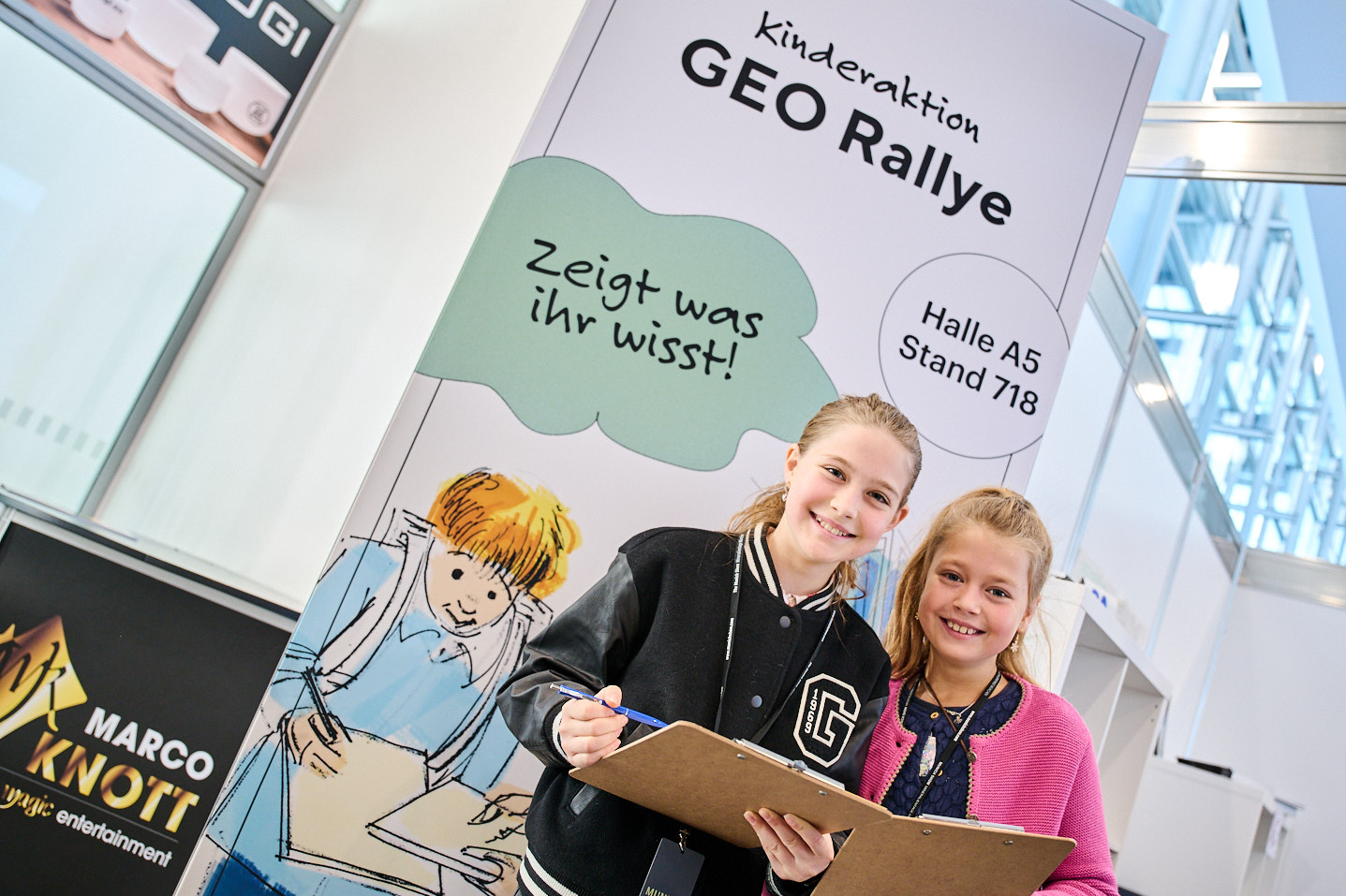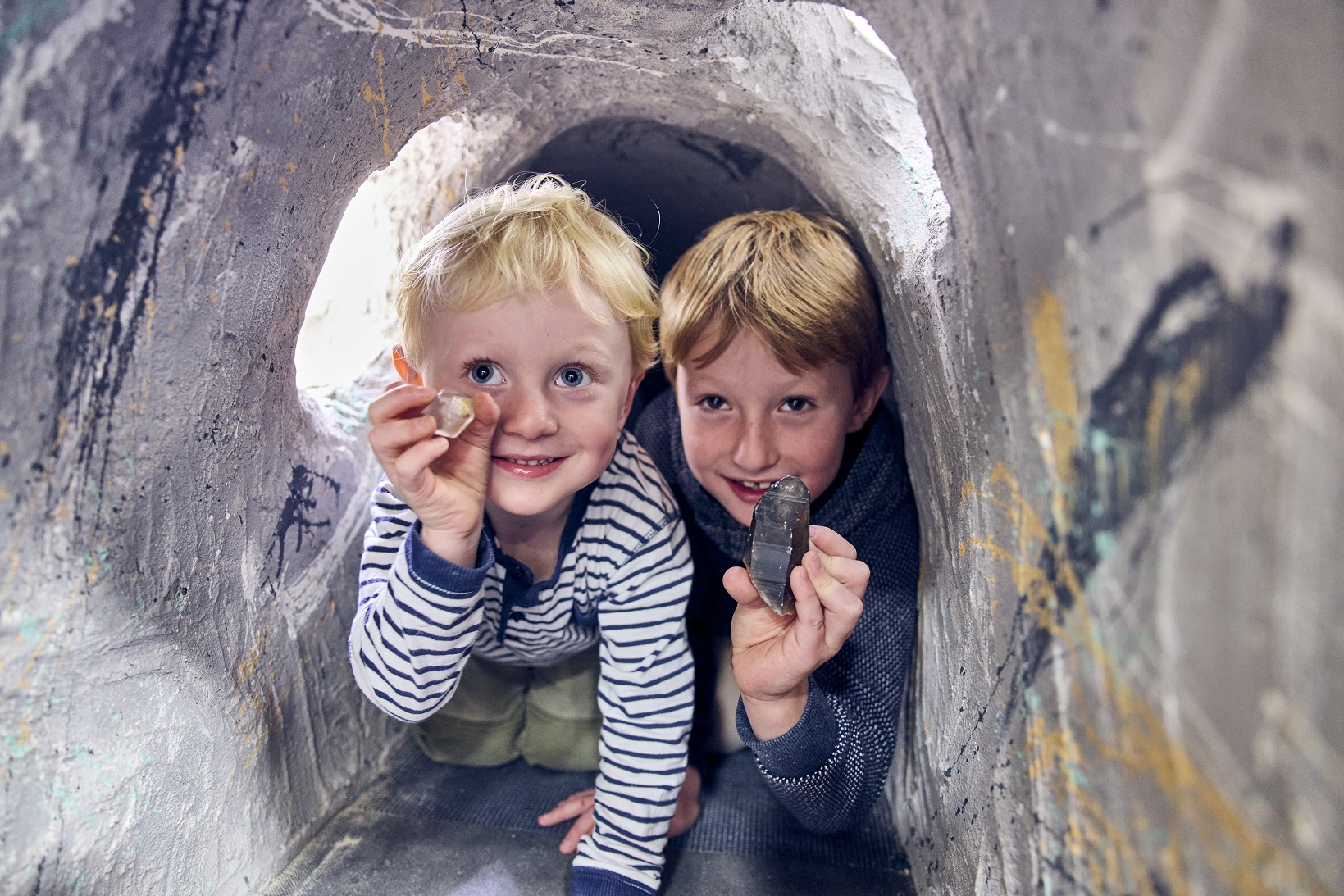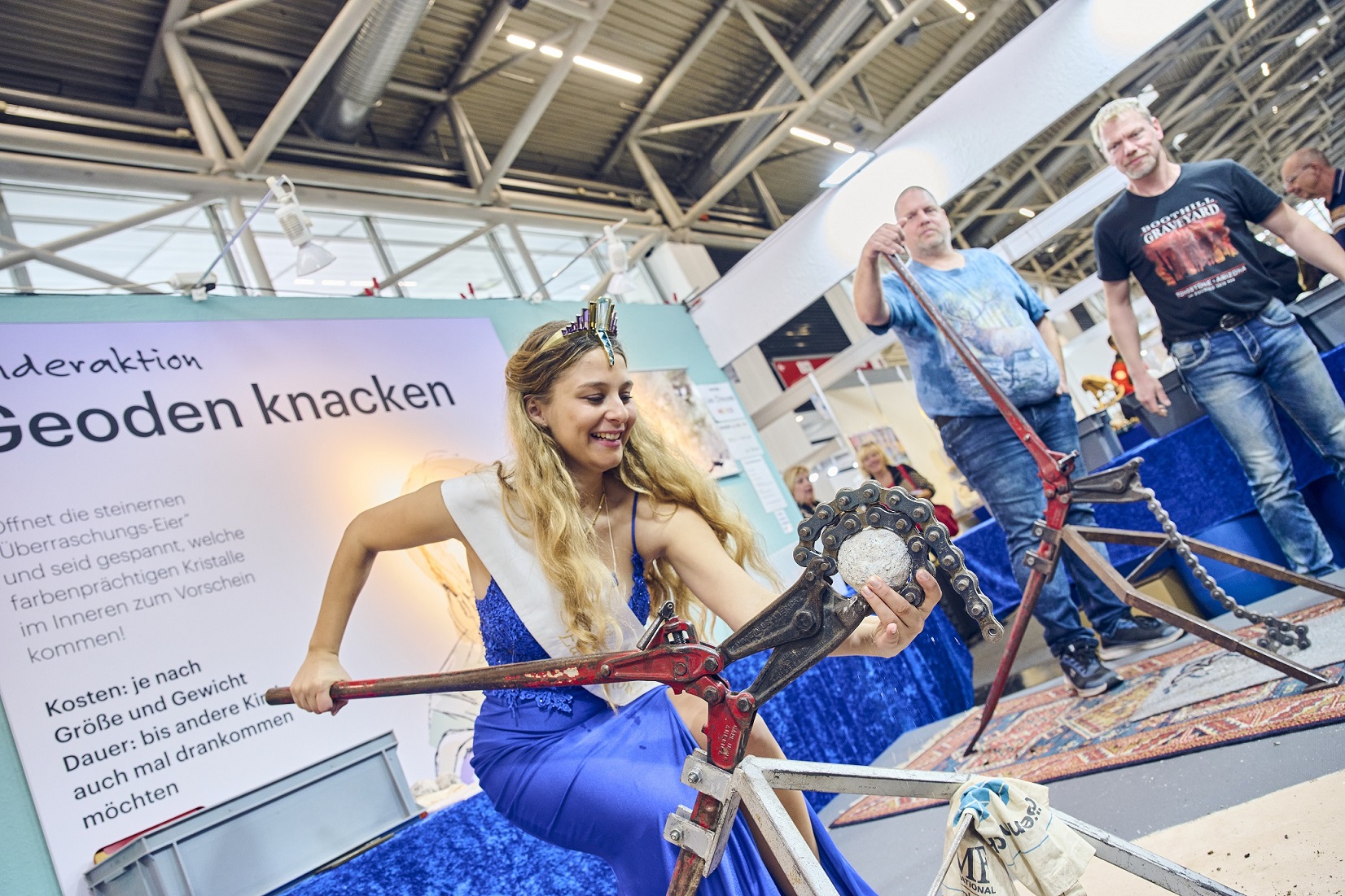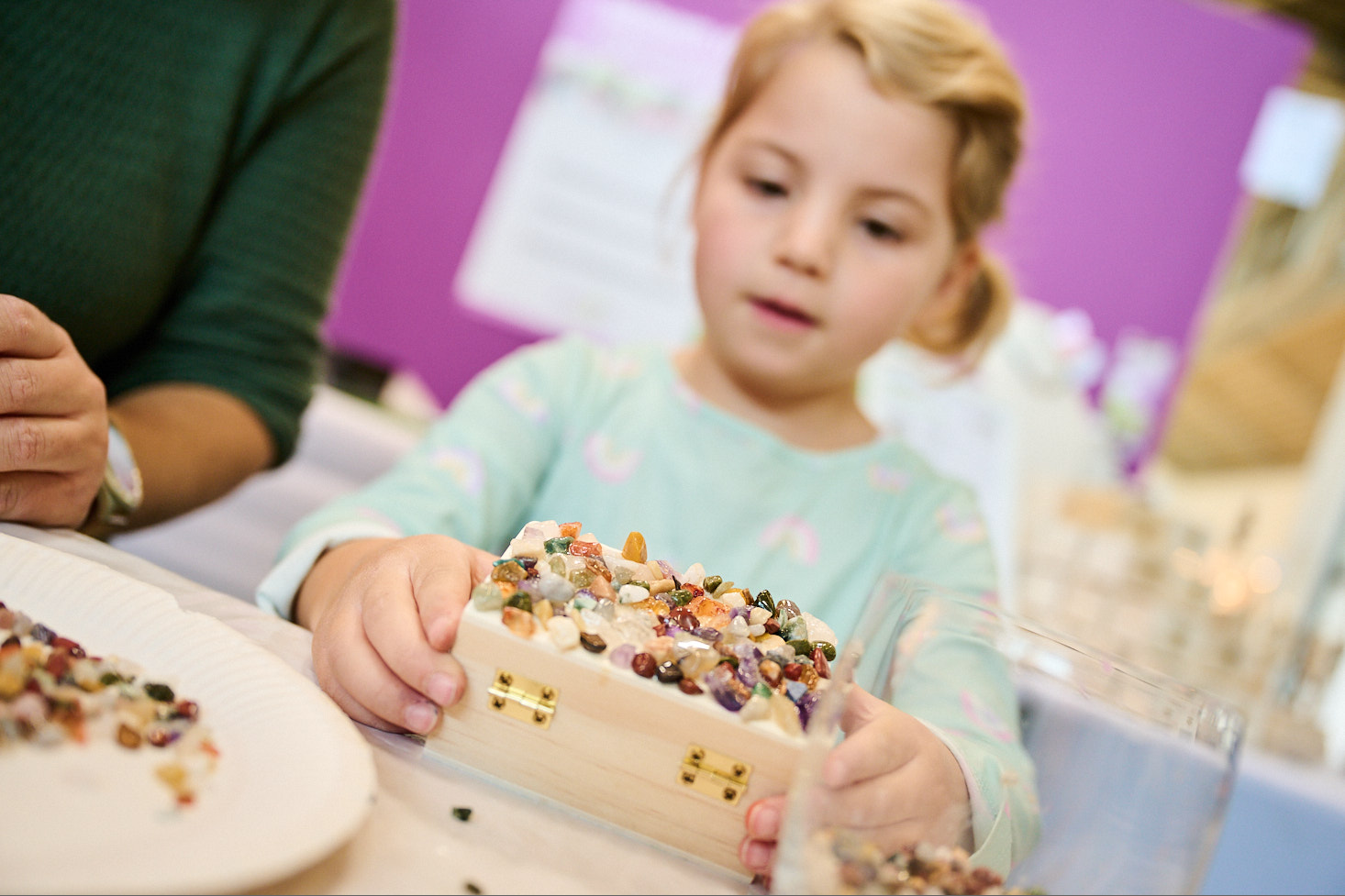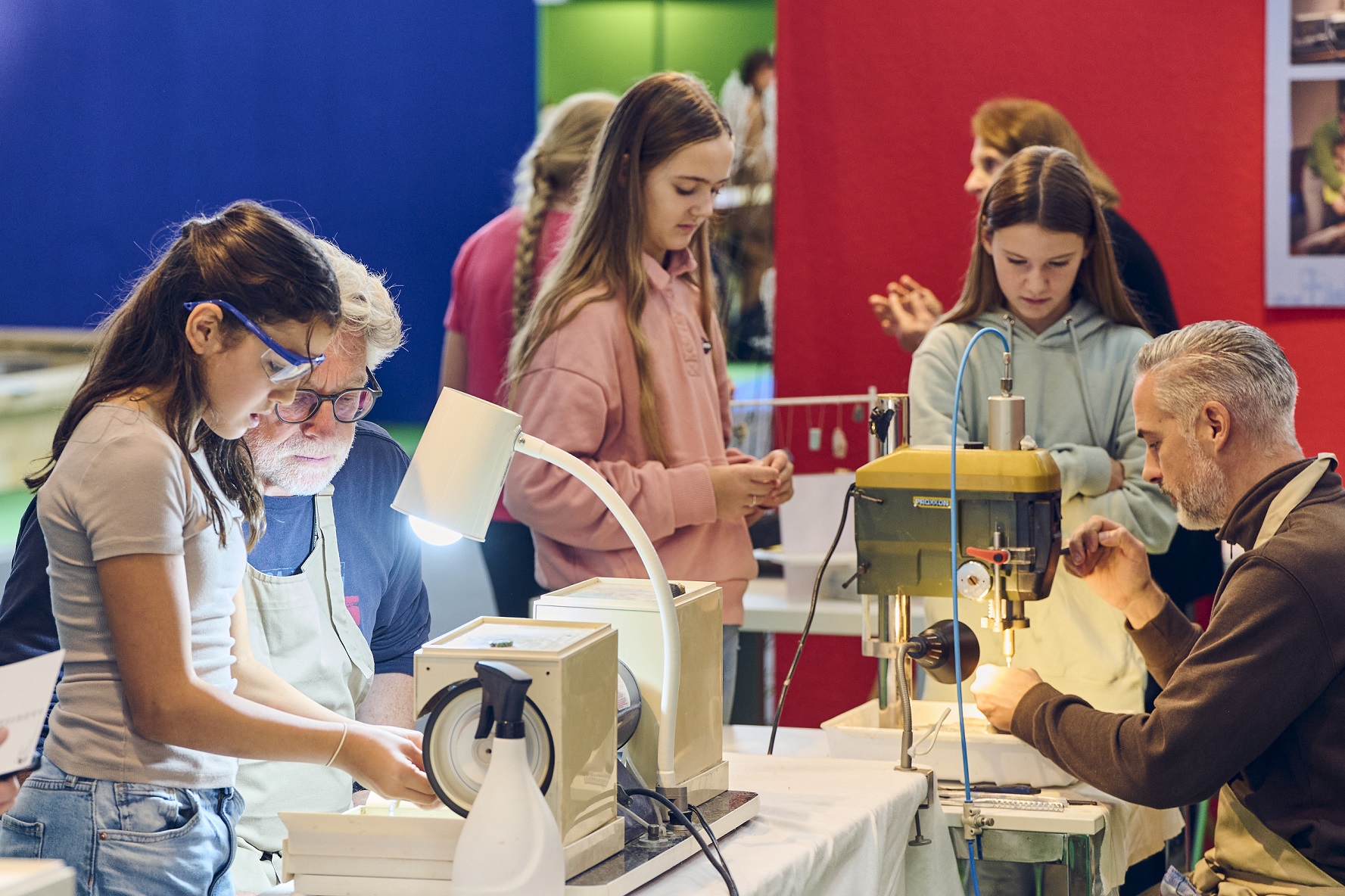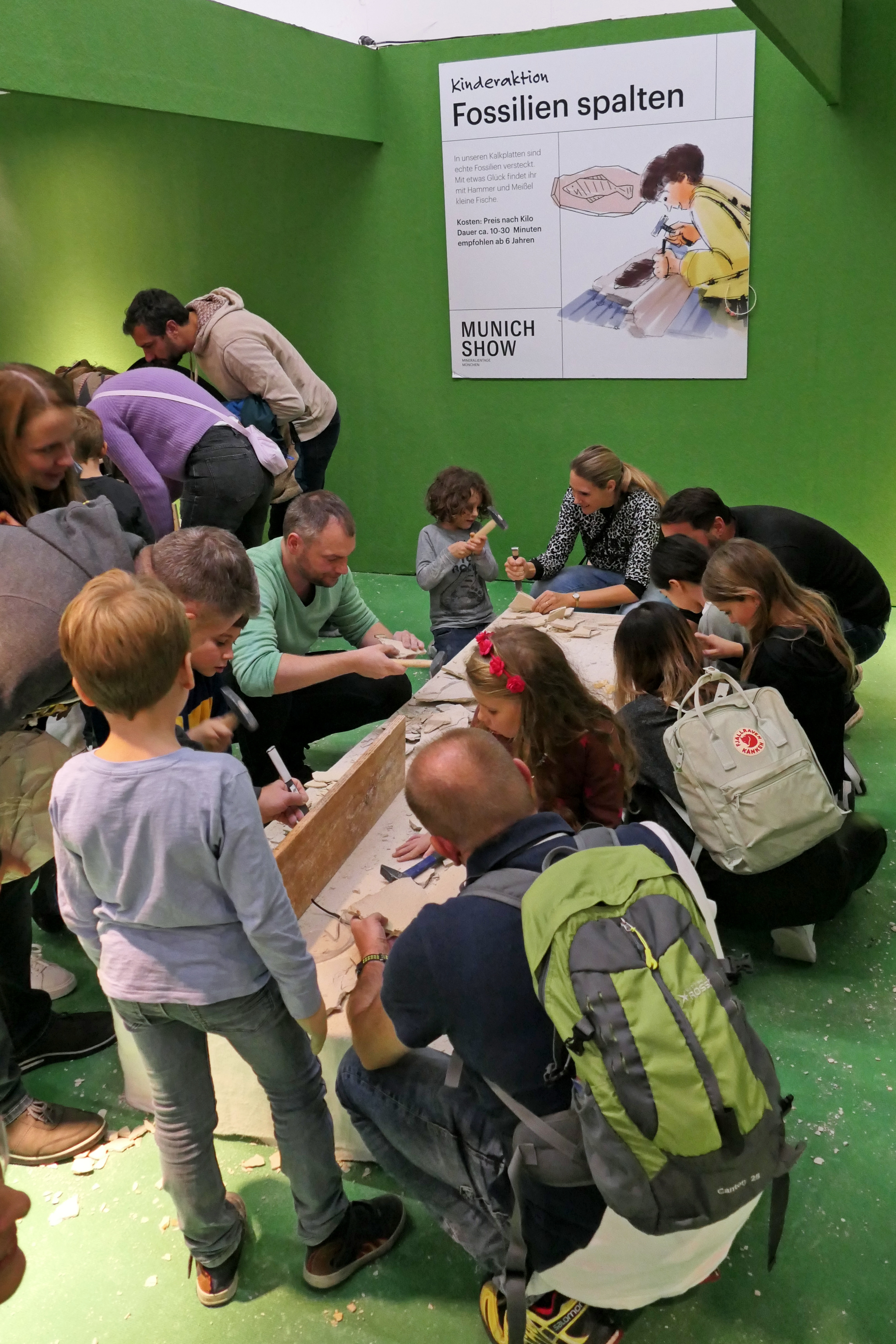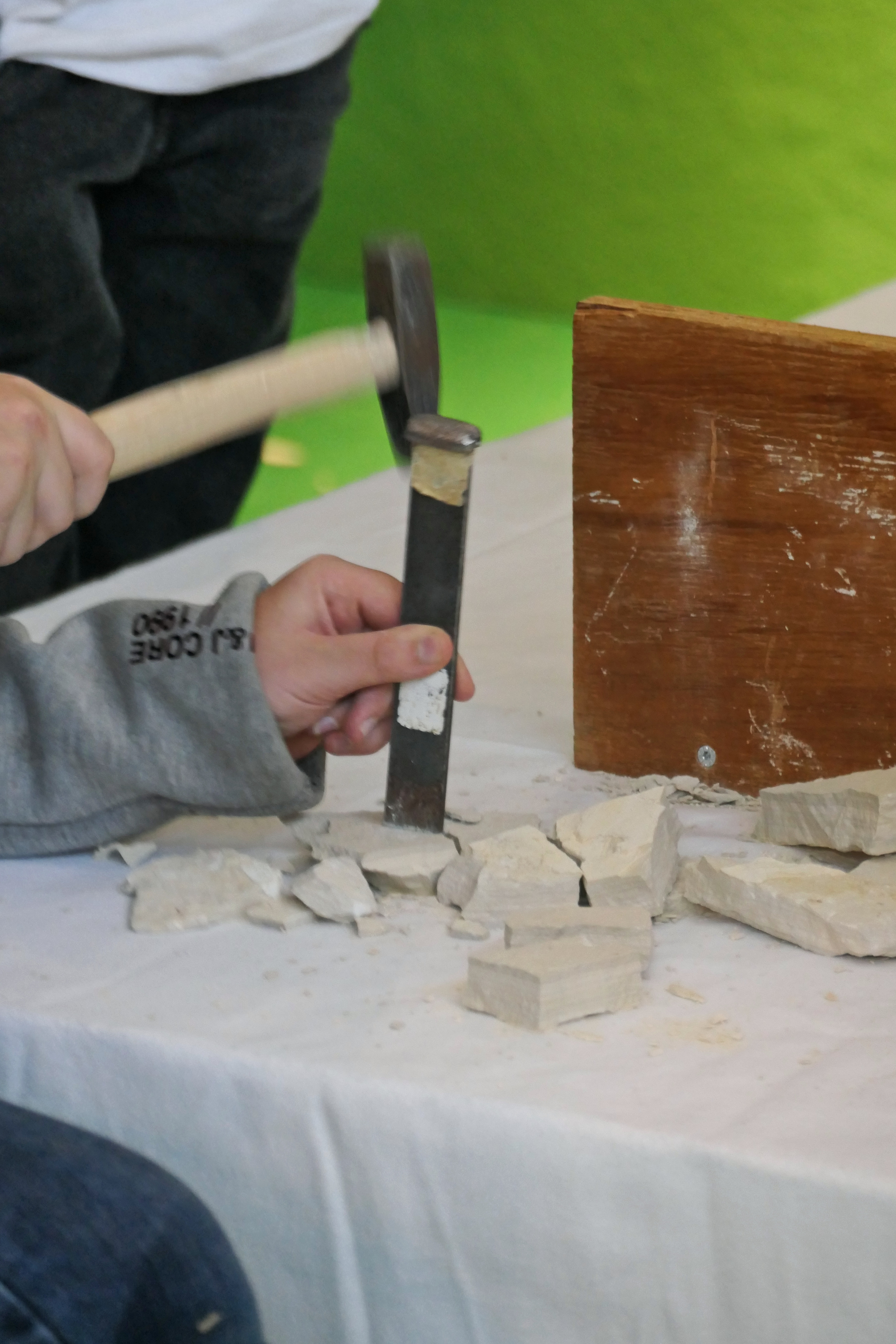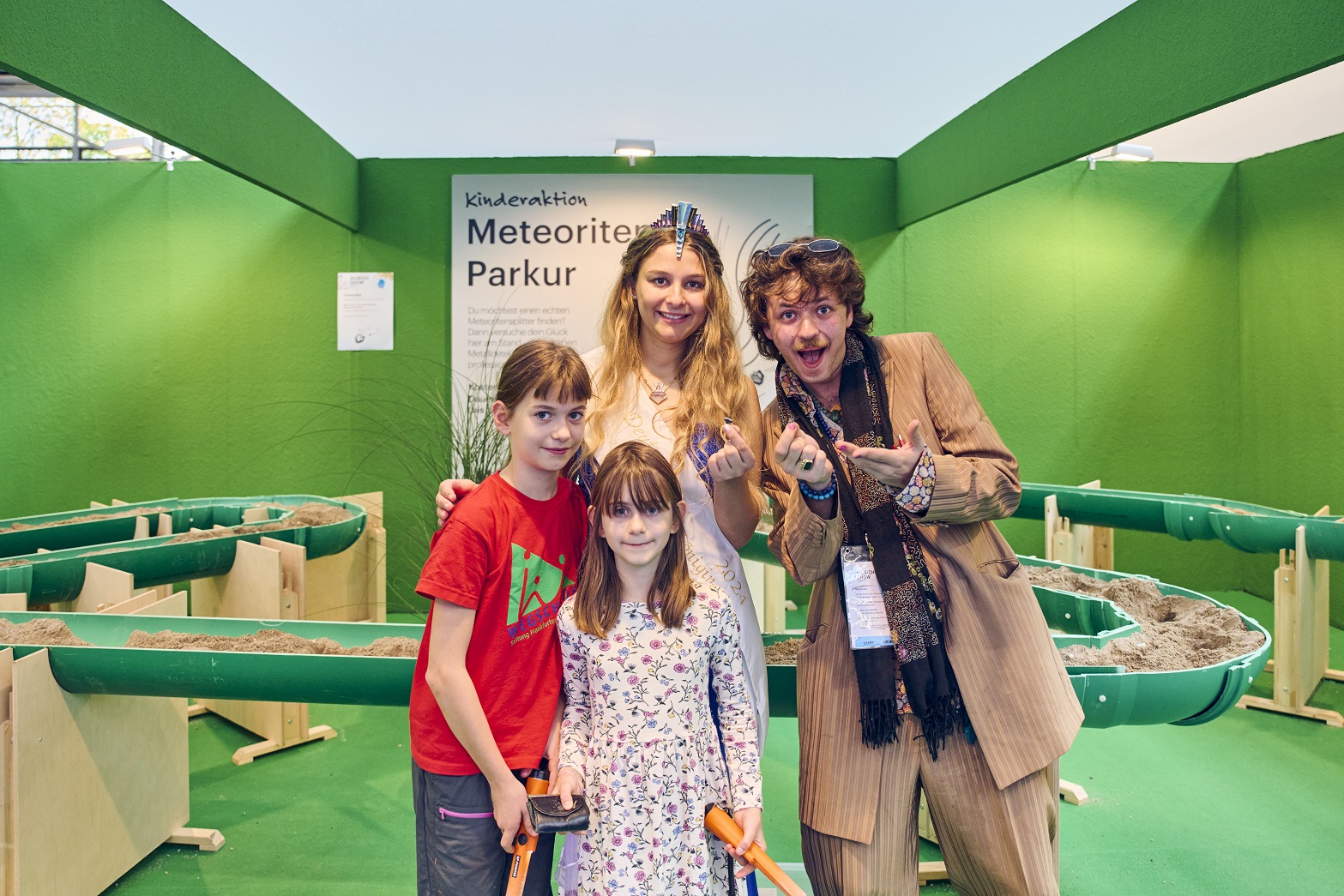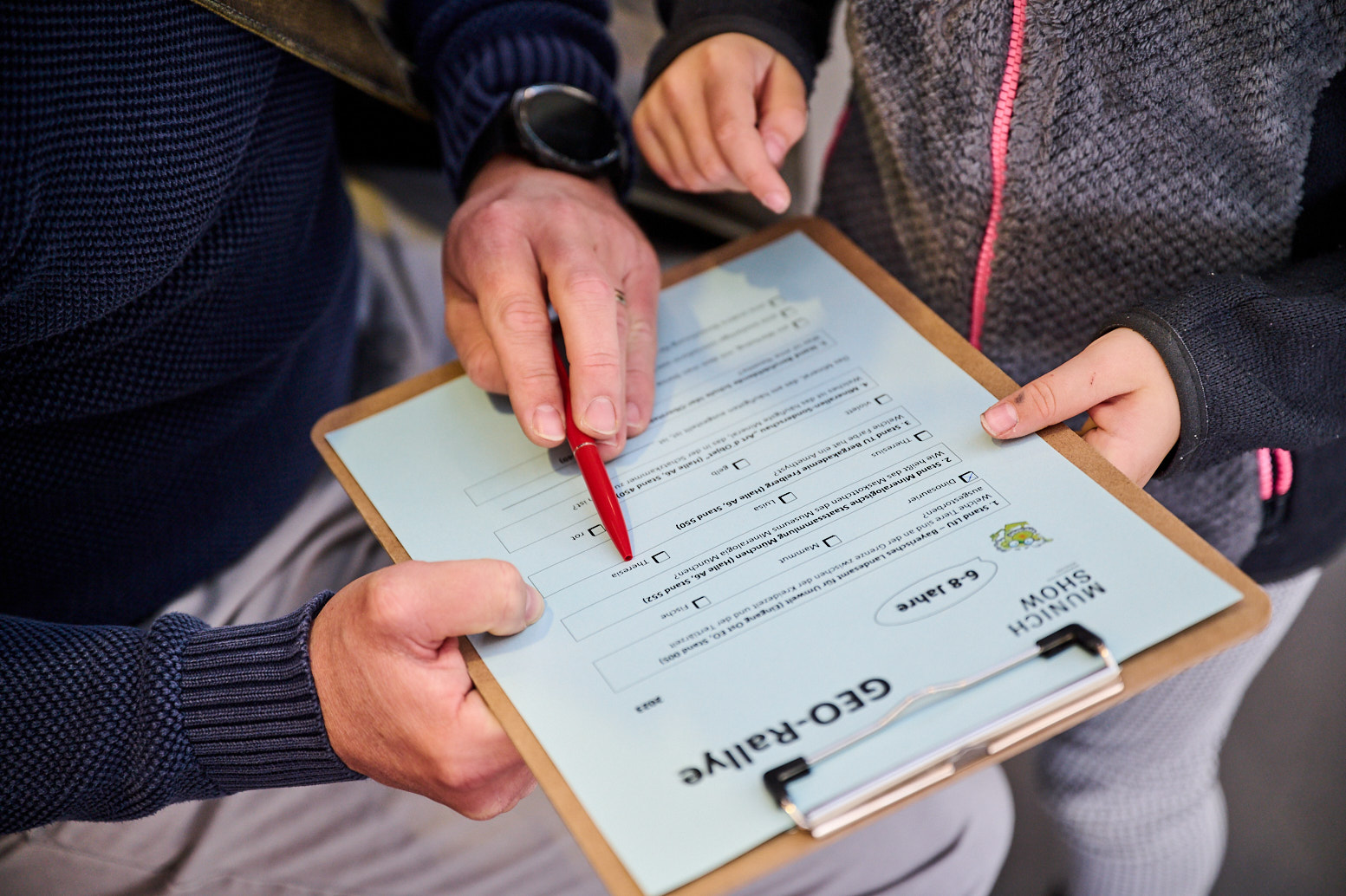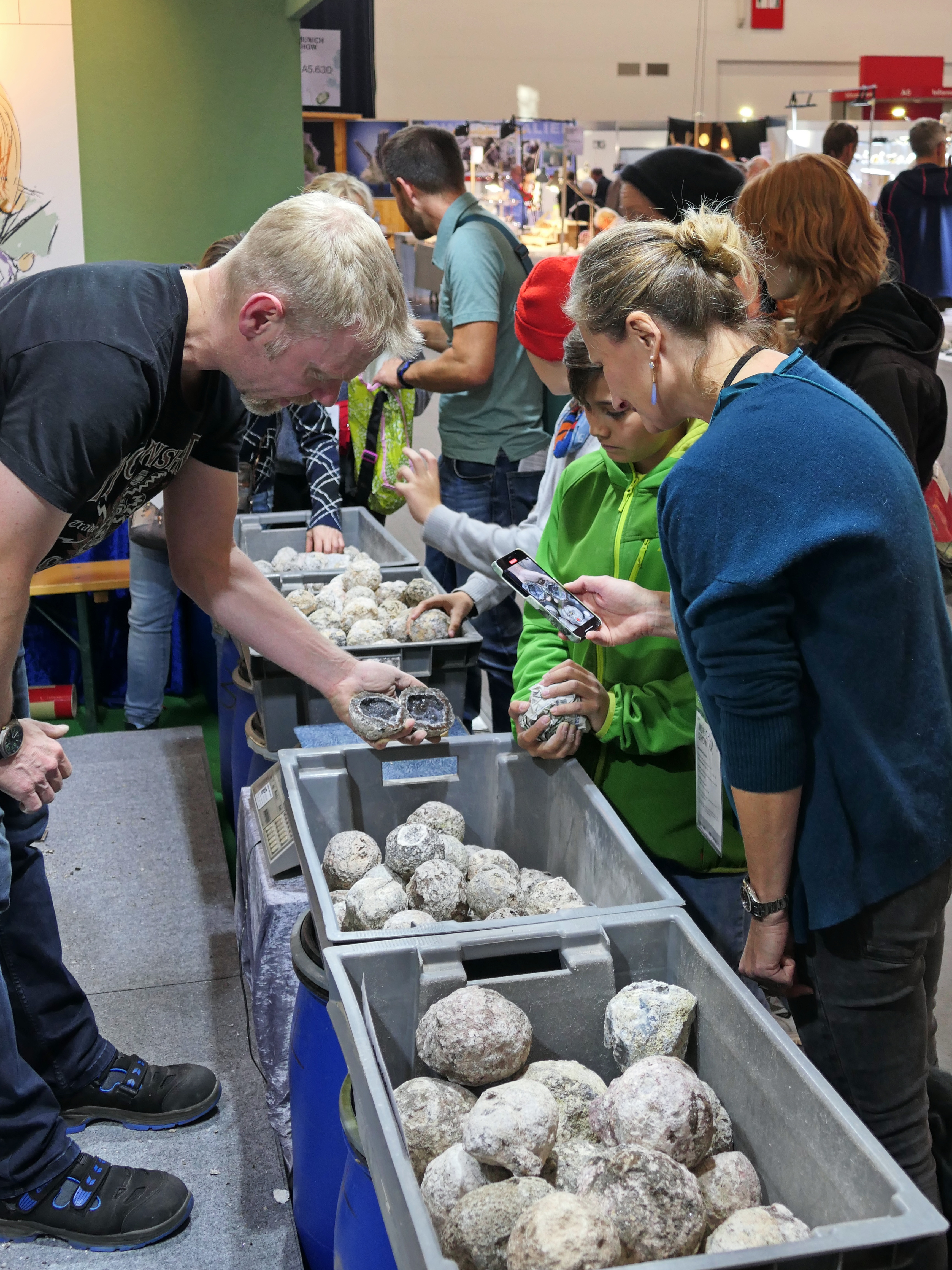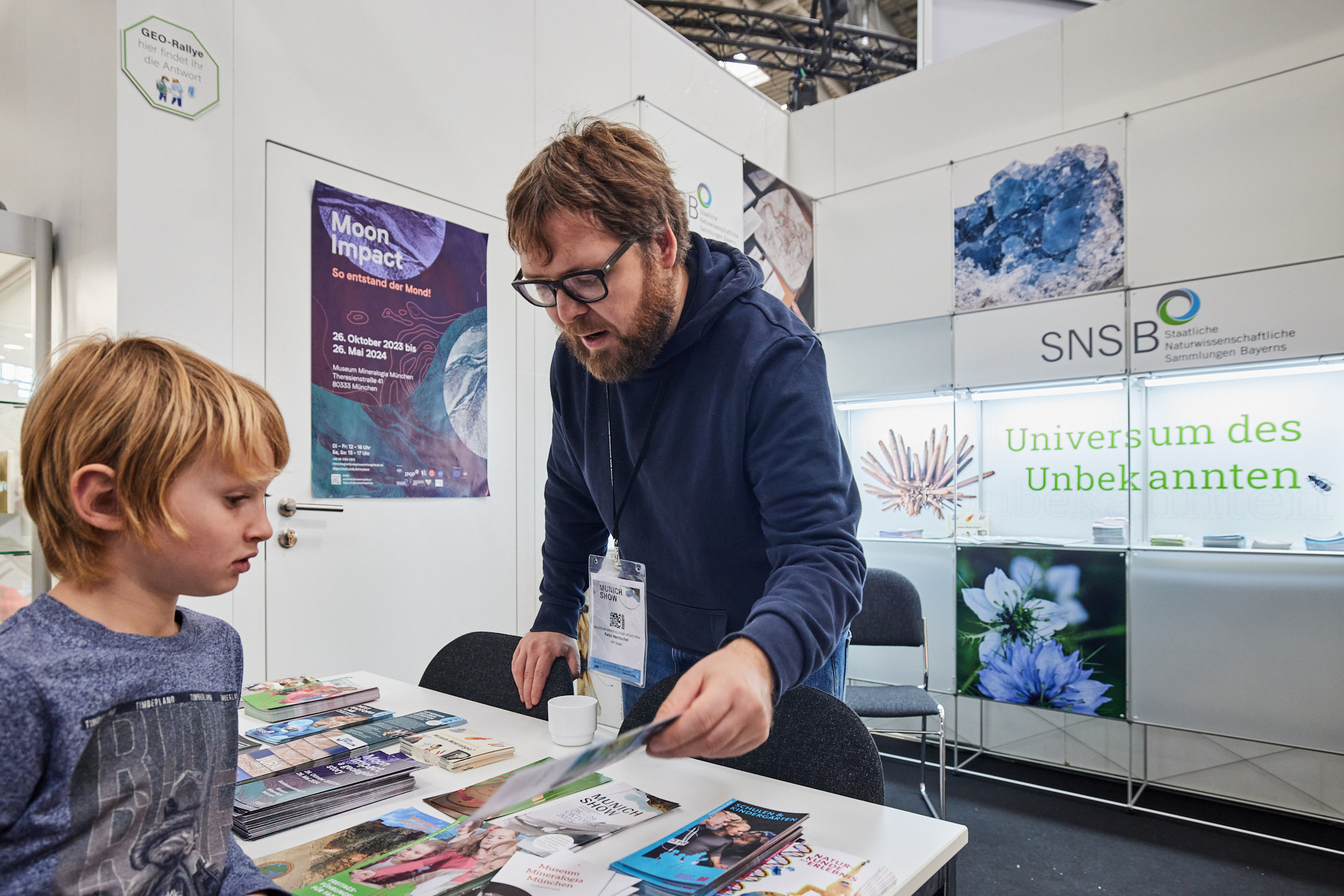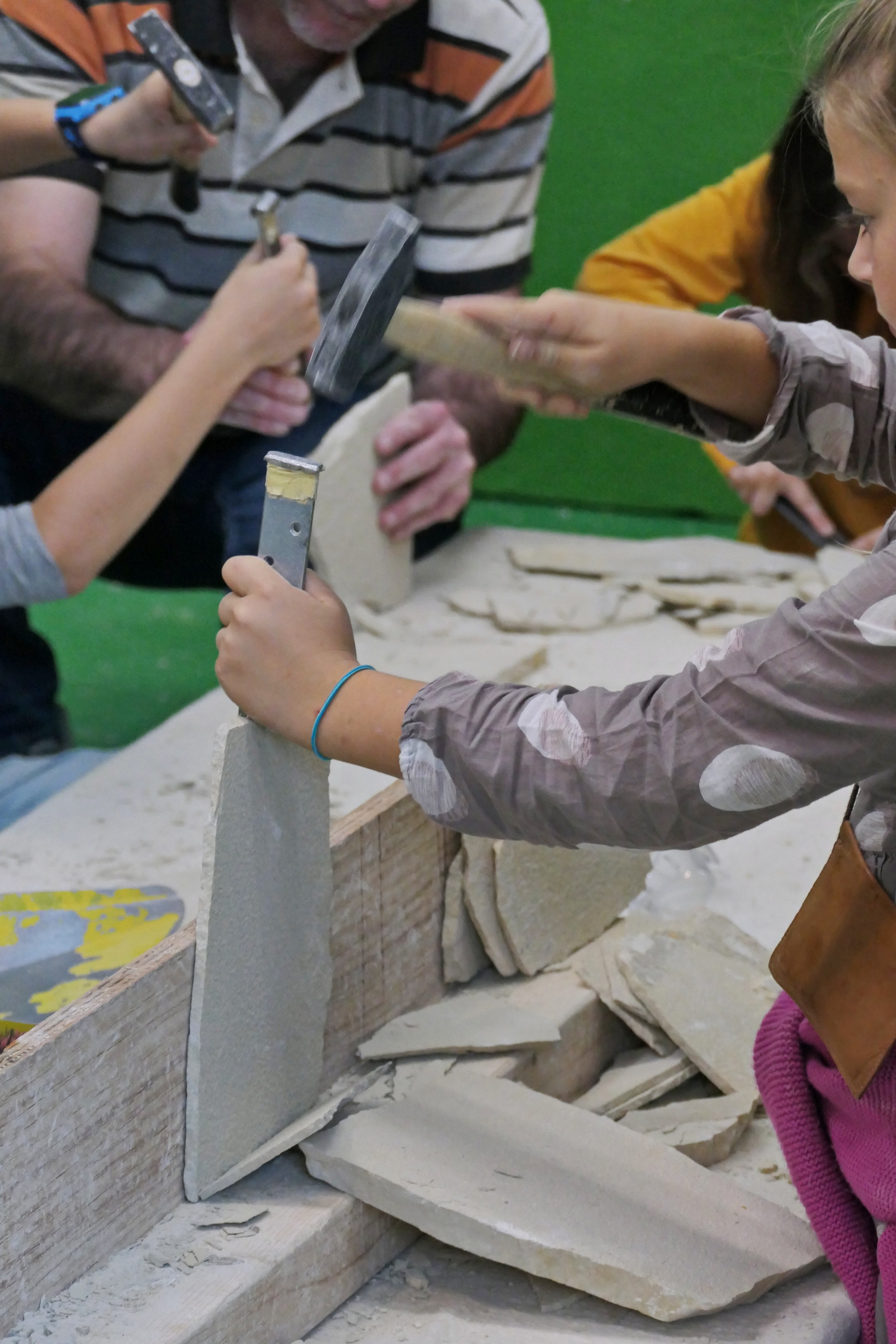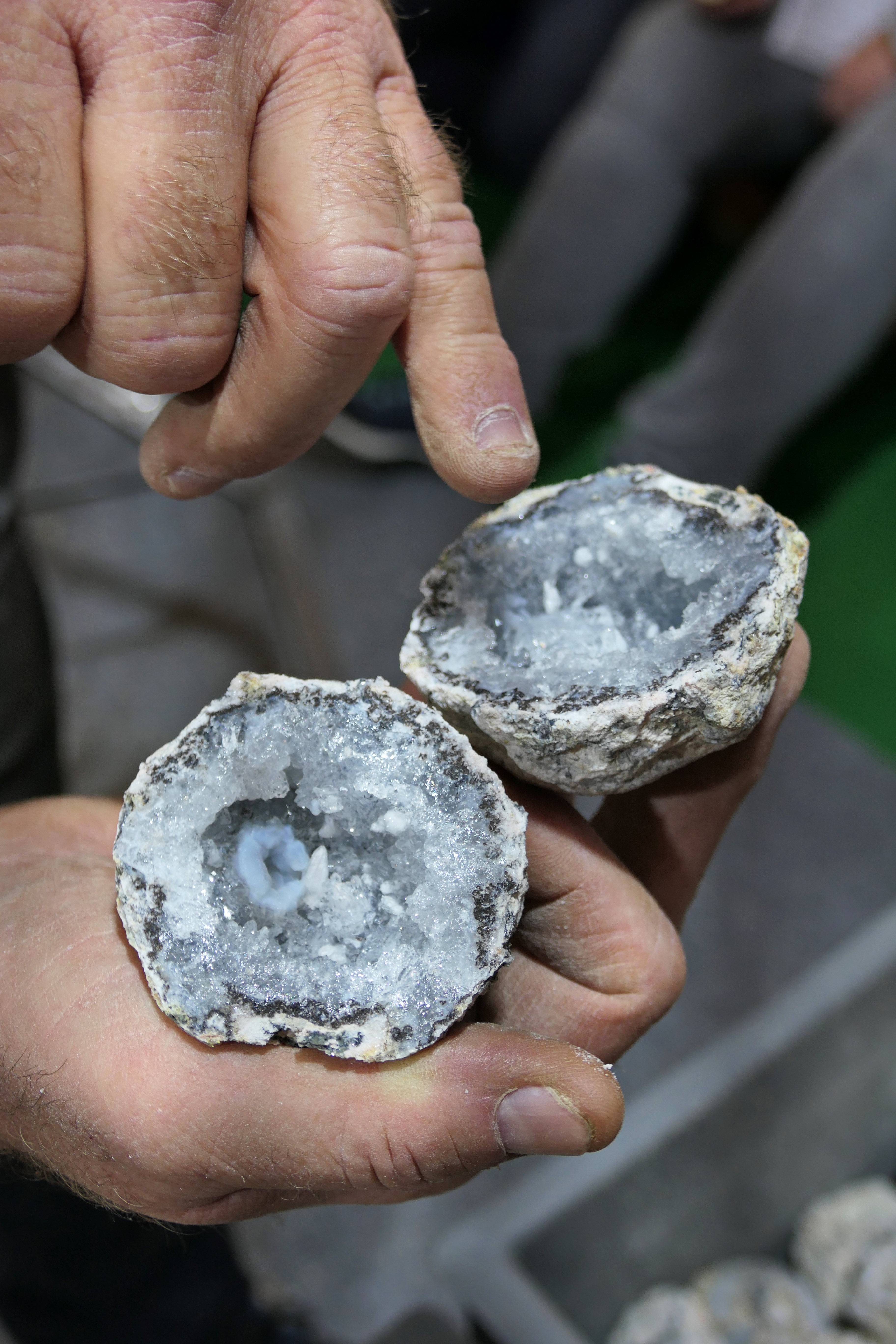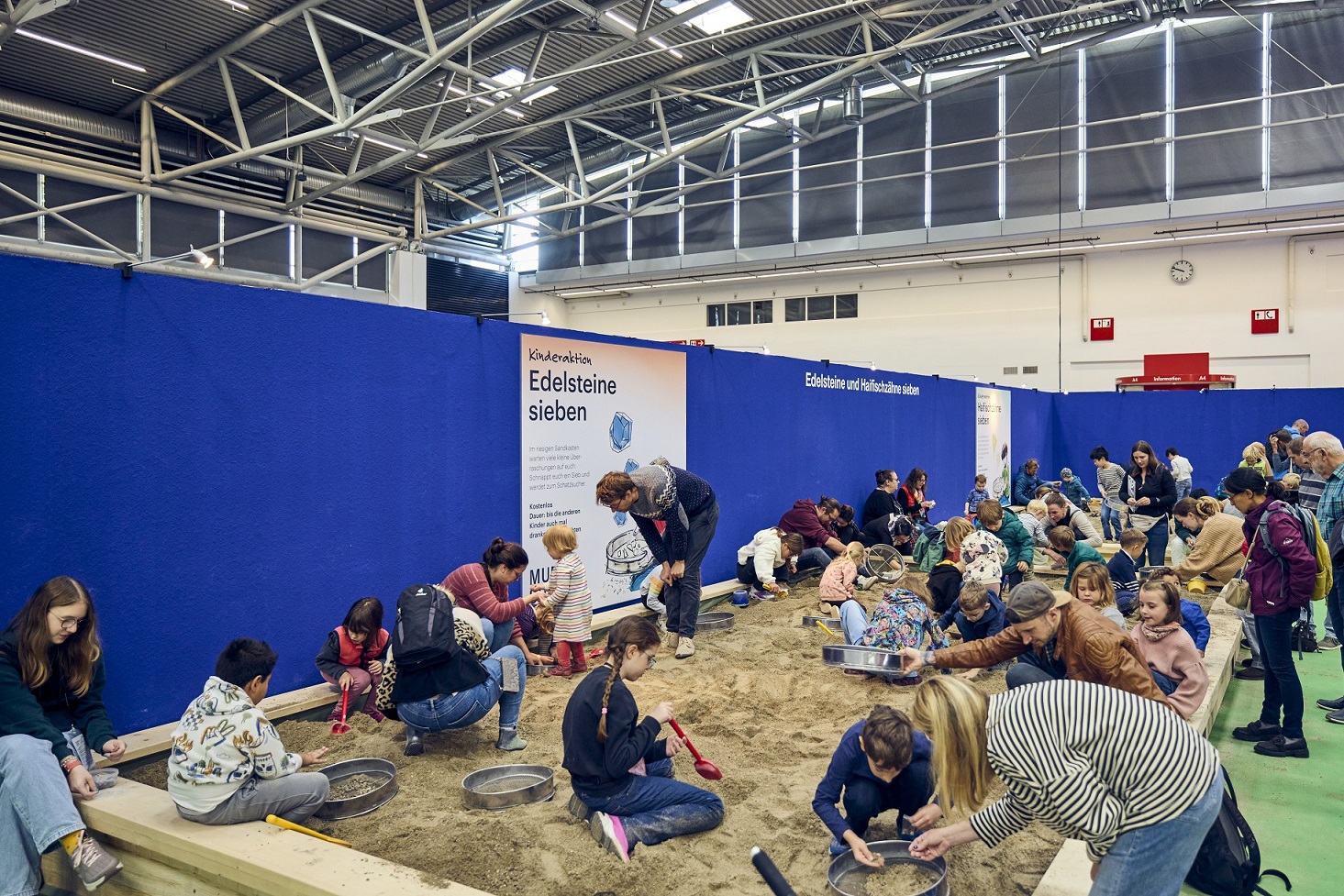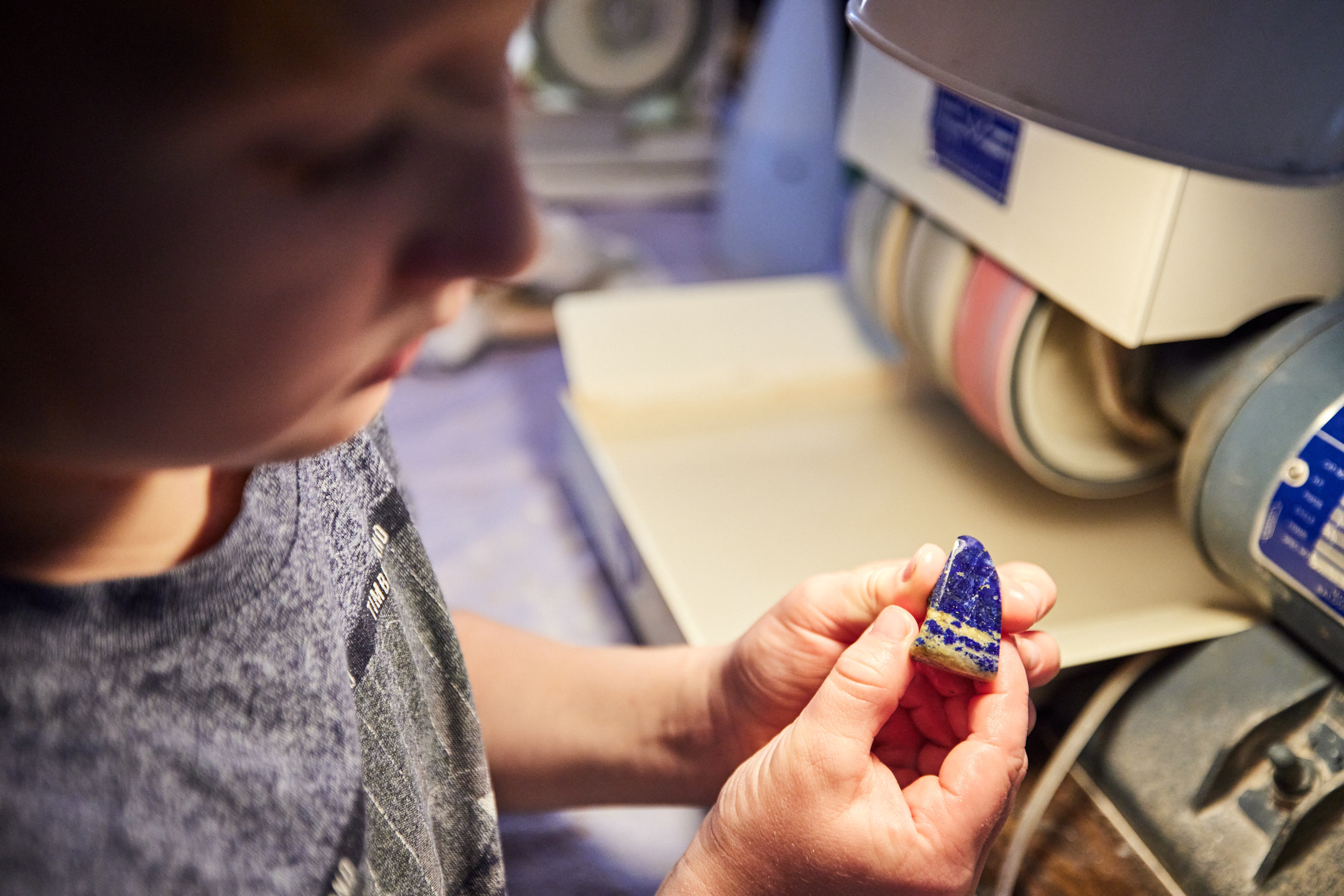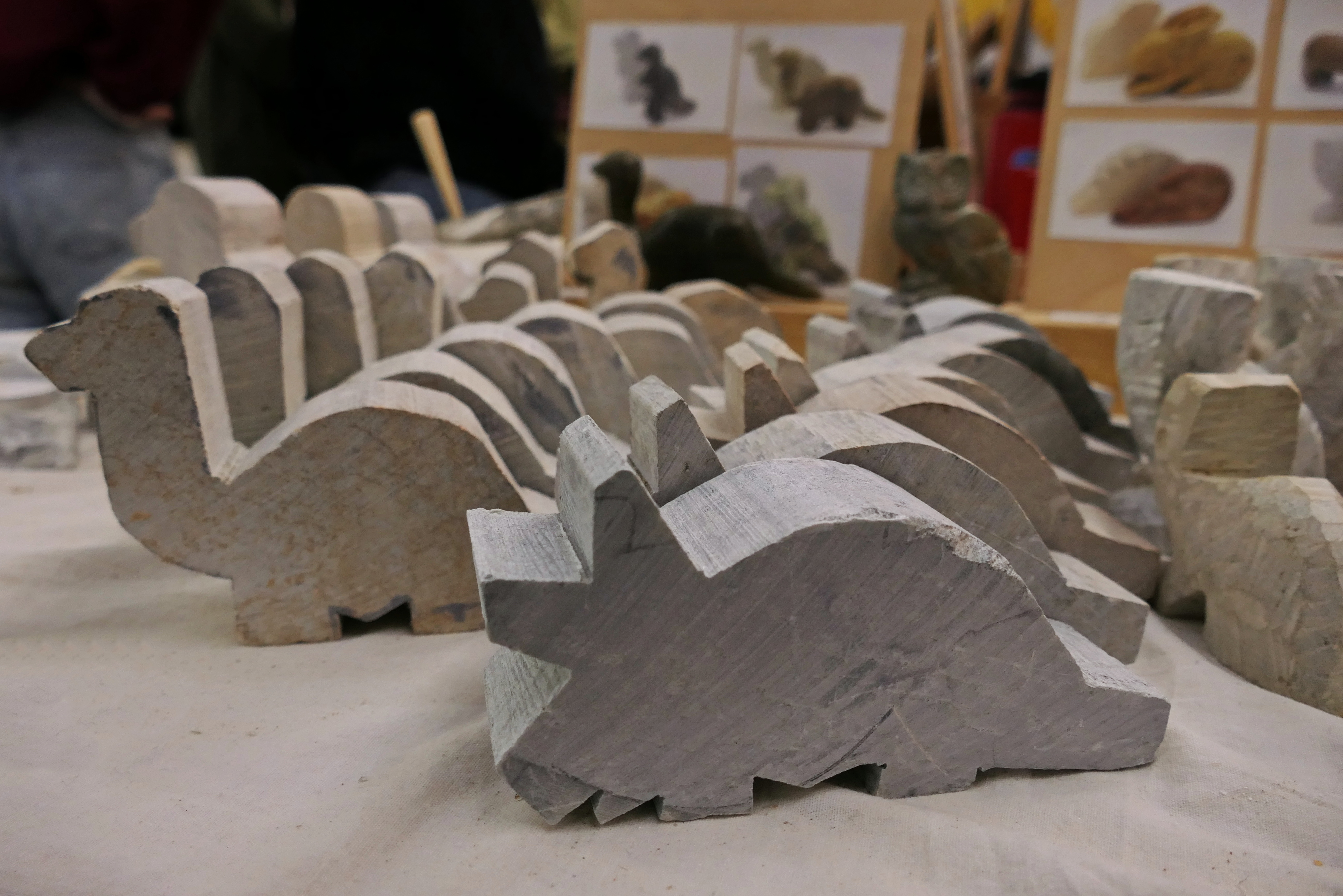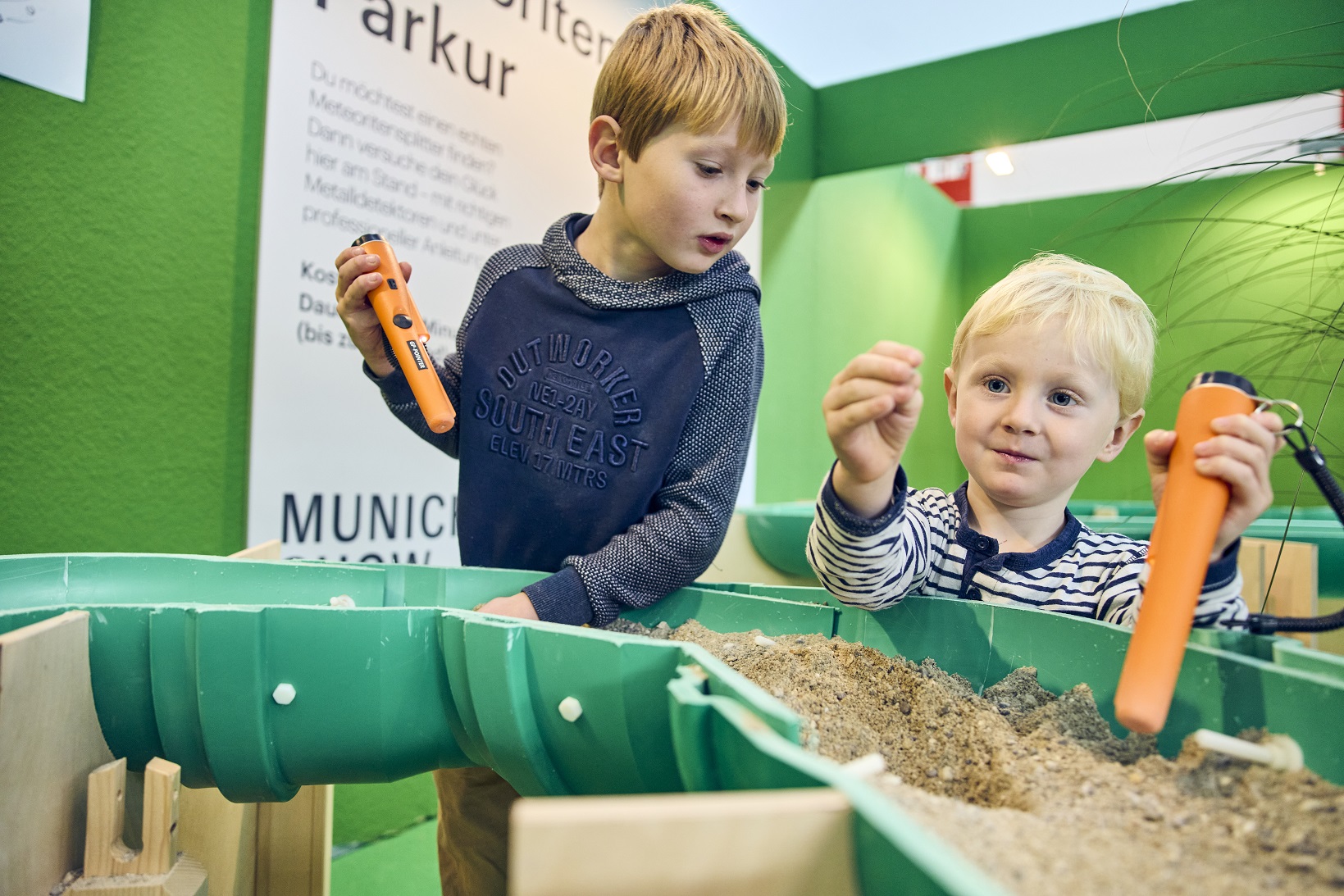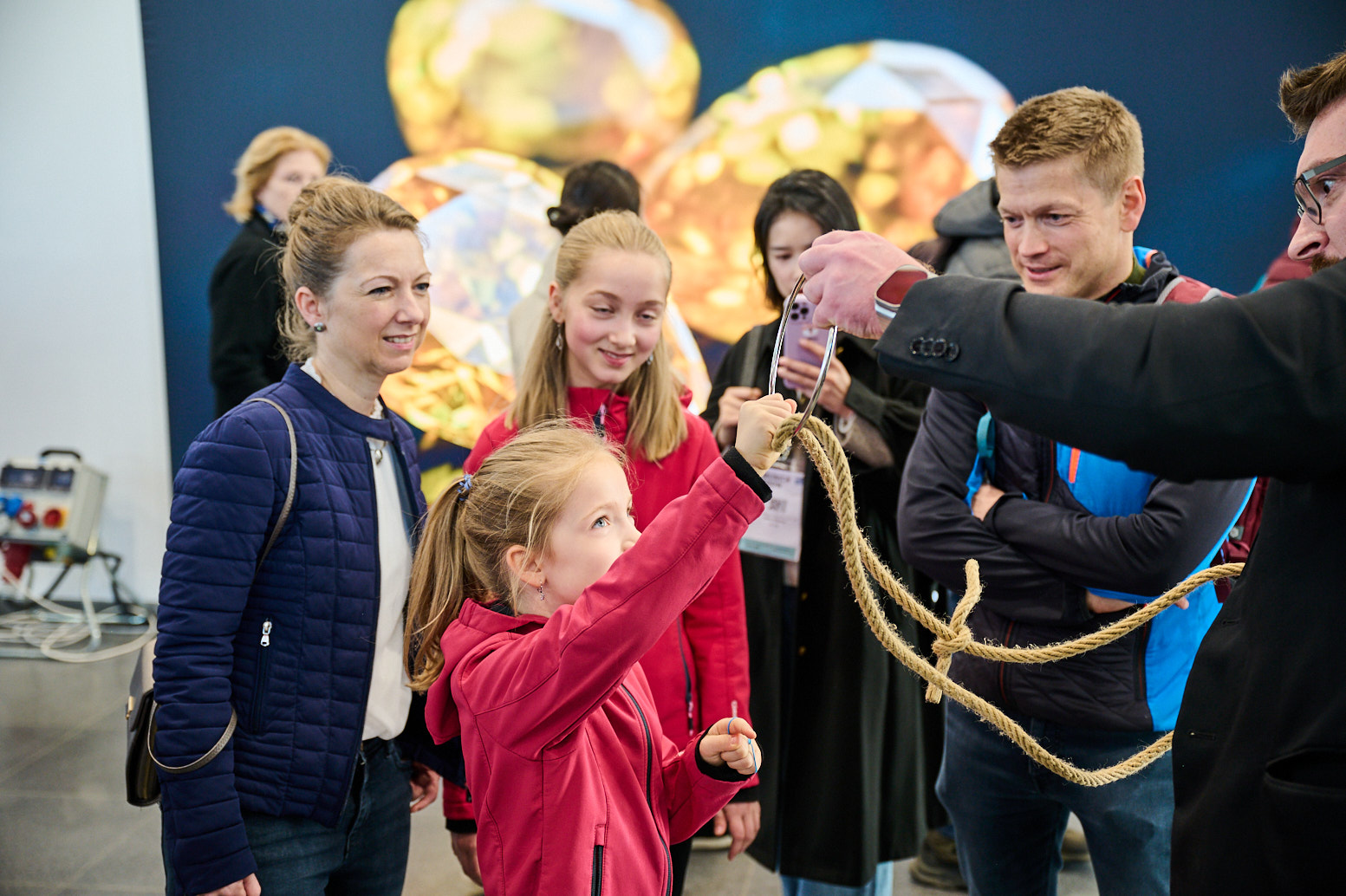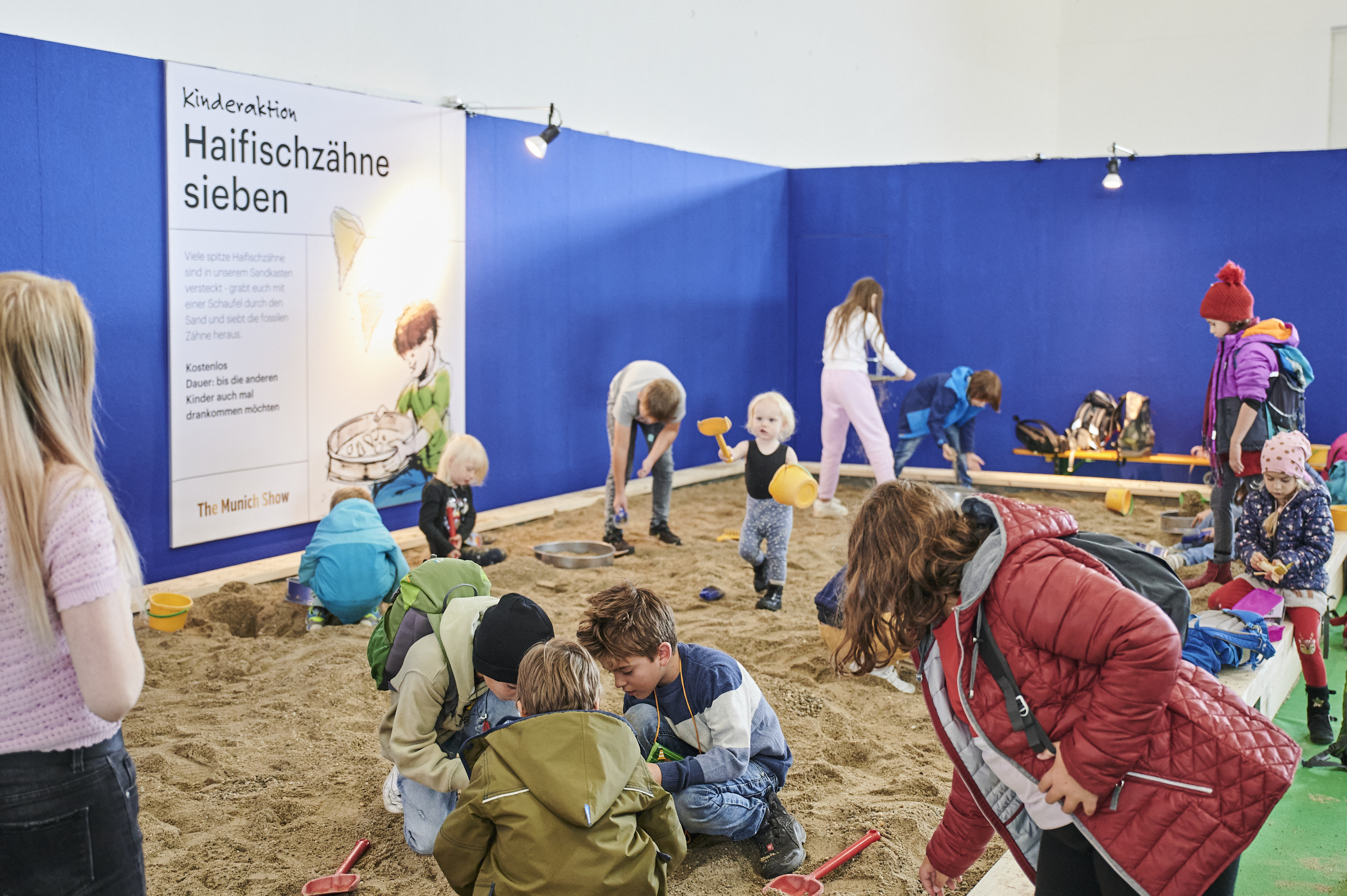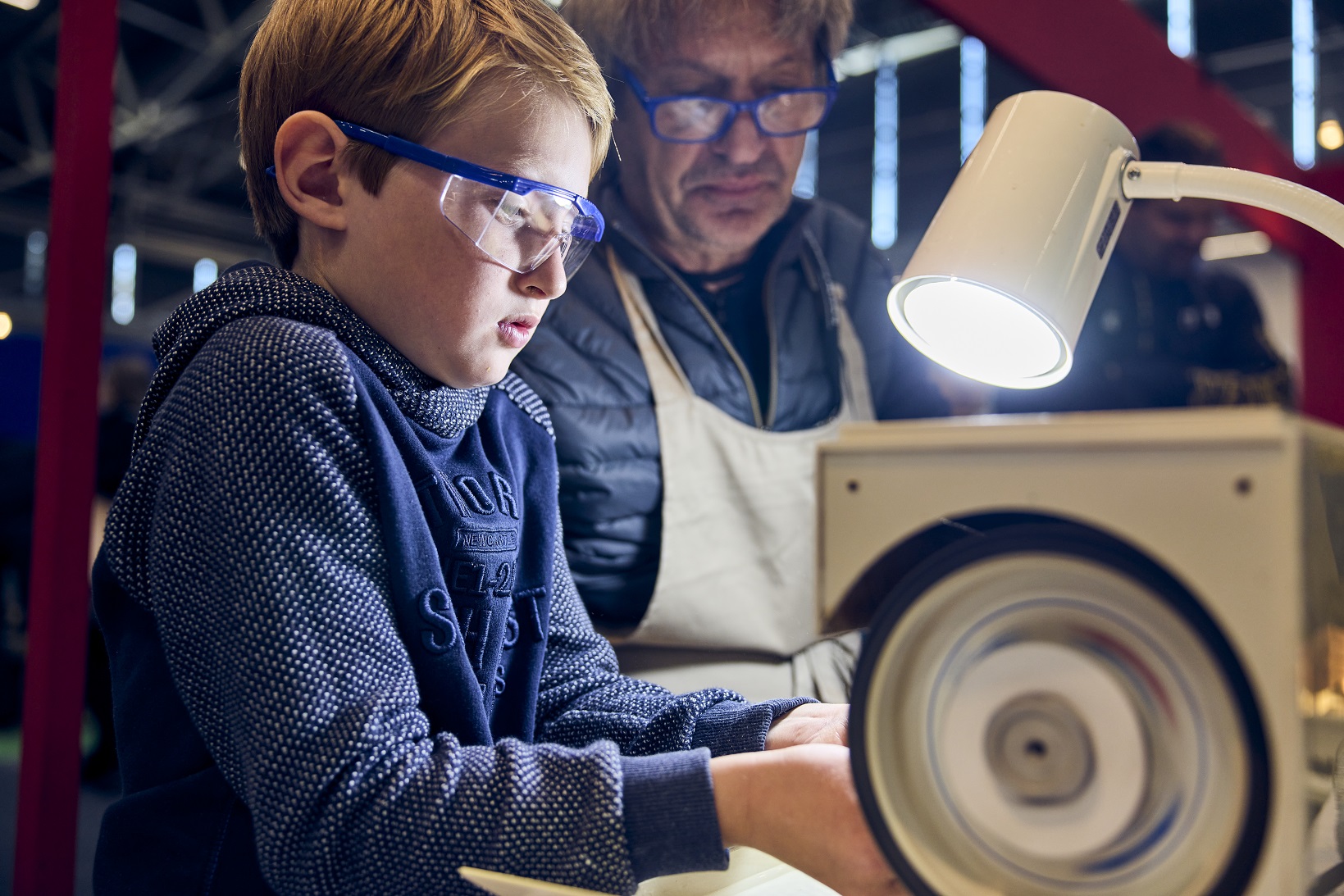Adventures in Knowledge: The Children's & Family Program
The Munich Show for children, families, and schools
At the Munich Show, children and young people experience the fascinating interplay of nature, time, and science up close. The trade fair is not only an international marketplace, but also a place for lively knowledge transfer and enthusiasm for the treasures of our earth.
Whether on the weekend or already on Thursday and Friday (only for school classes): young explorers embark on an exciting journey through the world of minerals, fossils, meteorites, and gemstones. Numerous hands-on activities encourage them to get involved, explore, solve puzzles, and discover how much fun science can be.
The program is accompanied by exciting lectures by experts who provide insights into the mysterious world beneath our feet.
There will be plenty to experience again in 2025:
Gold panning, gemstone cutting, solving puzzles in the geo-rally, cracking geodes, carving soapstone, sifting shark teeth, searching for gemstones, or completing the brand-new meteorite course—there is something for every age group here!
For school classes:
School classes can visit the Munich Show on Thursday and Friday. We ask teachers to register their school classes with us in advance. With special school class tickets, young visitors benefit from reduced admission prices.
Please send any questions and completed registration forms to: besucherservice@munichshow.com
Registration formOur actions at a glance:
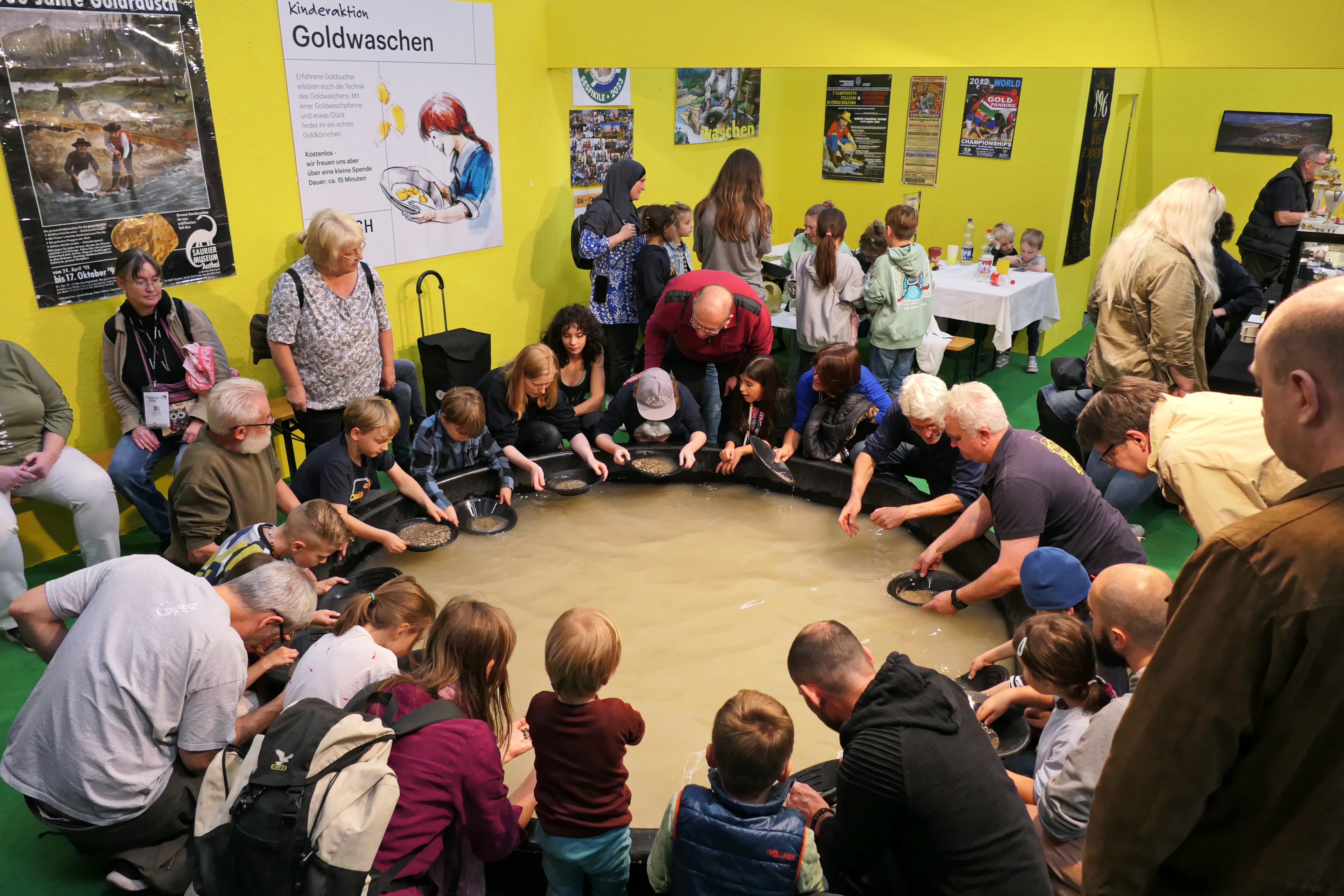
A touch of adventure and real gold rush fever
WhatHowWhere: Free of charge, duration: approx. 15 minutes, booth A4.200
The idea of gold panning as a competitive sport originated in Finland: Finnish gold panners organized the first sporting competition in 1974. Just three years later, in 1977, the first world championship took place, and it has been held annually ever since. The first world championship outside Finland was held in 1982 in Heiligenblut am Großglockner, Austria.
The tradition also lives on in Bavaria: at the Bavarian Championship in Riedenburg, around fifty participants recently competed in various categories, from women, men, and children to veterans, teams, and the special “traditional” discipline, in which gold is panned using a classic tin bowl.
In Germany, gold panning is generally permitted as long as you avoid national parks and private property. You can keep any gold you find. In theory, you can search for gold in almost any river, but the chances of finding it vary greatly. The equipment is simple: a gold pan, a shovel, and above all, patience.
At the Munich Show, experienced gold prospectors will demonstrate step by step how it works. With a real gold pan and a little luck, treasure hunters of all ages may even discover a real gold nugget – a hands-on experience with real lasting value!
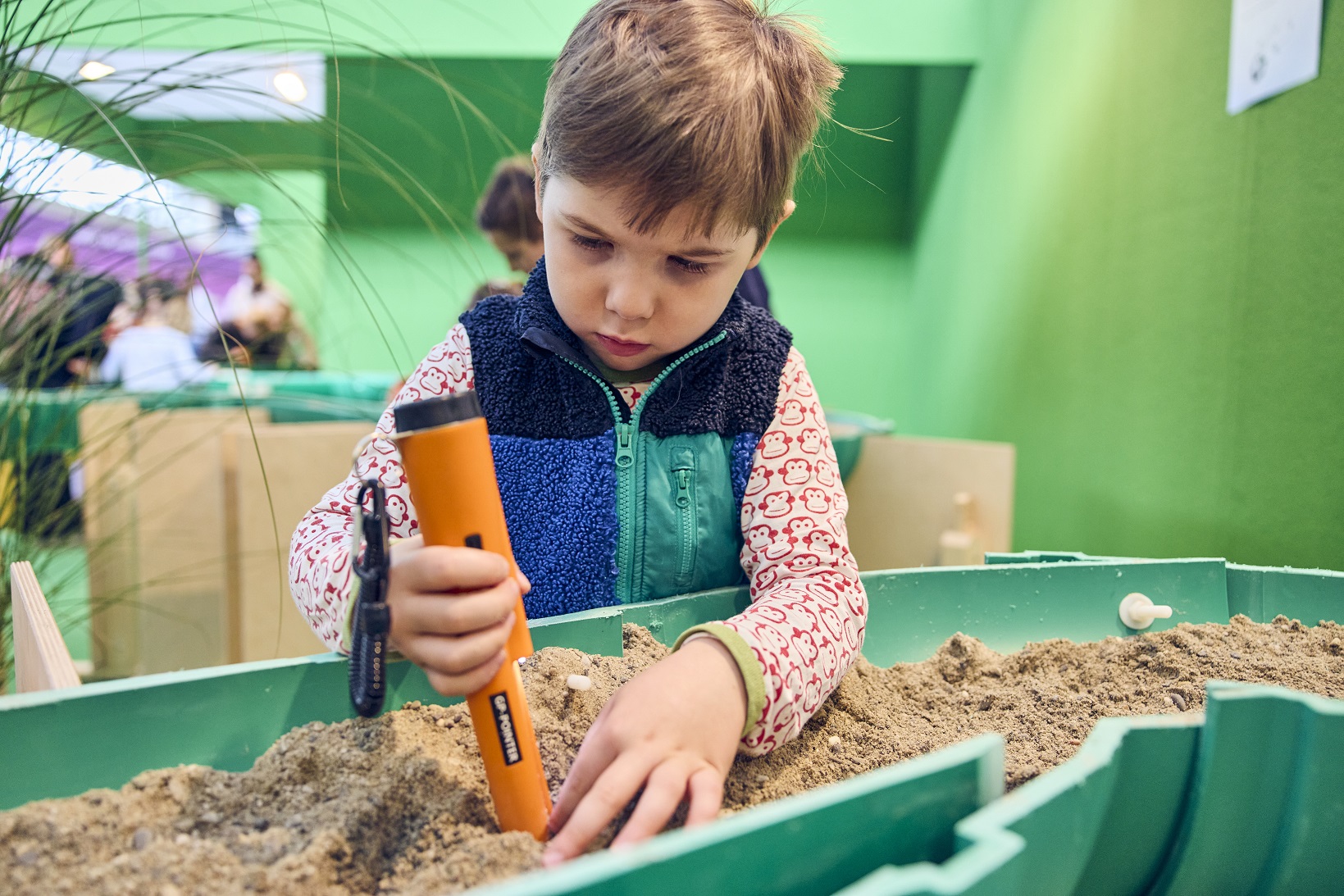
Searching for traces of extraterrestrials
WhatHowWhere: Free of charge, duration: approx. 15 minutes, booth A4.215
Explorers of all ages are invited to go on an exciting search for meteorites using small metal detectors. Numerous small pieces of meteorite are hidden in the sand in a specially designed course.
When you move the detector over the sand, you will hear a signal, with more frequent beeps indicating a possible find. This turns the treasure hunt into a playful adventure that requires technical skill and curiosity.
This new highlight at the Munich Show combines fun, learning, and discovery, offering all visitors the opportunity to find real remnants from space and learn more about meteorites and their significance.
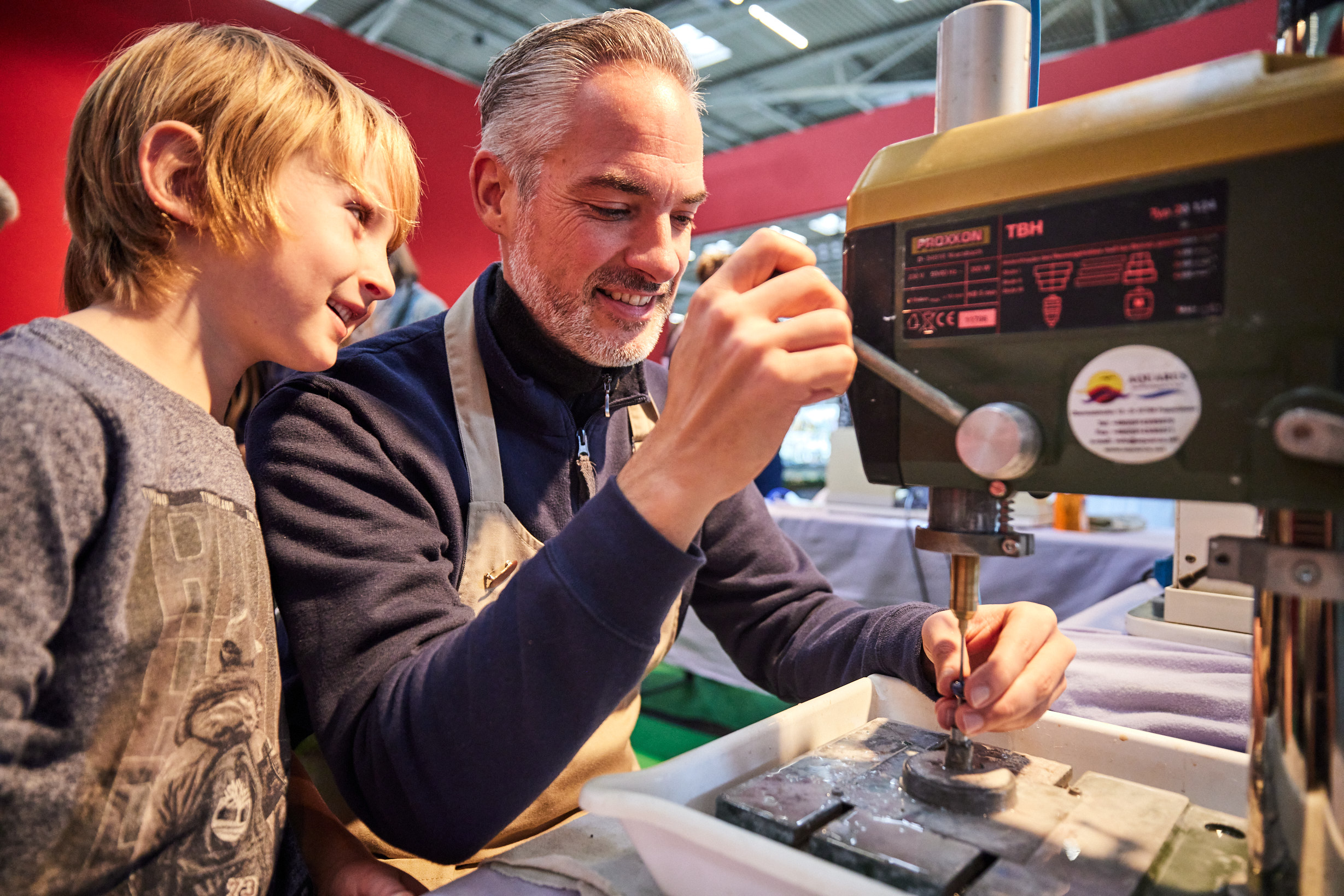
Sparkling treasures made by yourself
What, how, where: Cost: approx. €3 per stone, recommended for ages 4–5 and up, duration: approx. 30 minutes, booth A4.328
Gemstones fascinate us with their colors, shapes, and mysterious origins. They are formed deep within the Earth, often through volcanic activity, and over time they rise to the surface. There they wait to be discovered.
Children are particularly fascinated by these shiny stones. "What is my stone called? Where does it come from? What does it look like in its raw state? And how can I turn it into something special?" This curiosity is the focus of our interactive station.
Children can choose their favorite stone from a large selection of gemstones, such as lapis lazuli, rose quartz, green opal, or rock crystal. The choice is not that easy! But no matter which one they choose, the journey from raw stone to piece of jewelry begins immediately.
Our experienced helpers explain everything patiently and in a child-friendly way. Whether using a polishing machine or by hand with sanding sponges, each child decides for themselves how to make their stone shine.
Finally, a hole is drilled, a ribbon is threaded through, and the finished pendant can be worn proudly around the neck or added to your own collection. A shiny souvenir and a little treasure to take home with you!
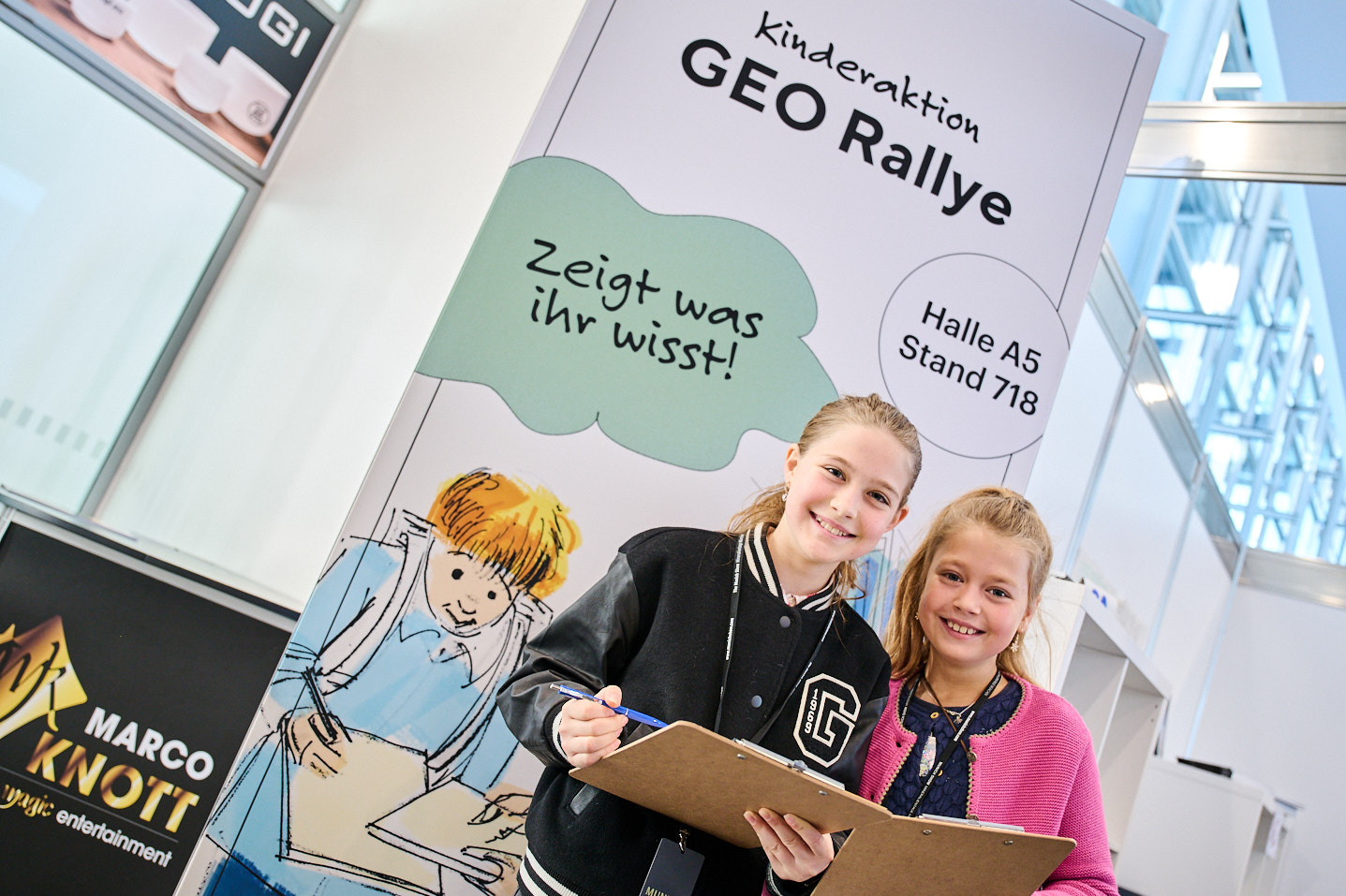
Discover the secrets of the Munich Show
WhatHowWhere: Free of charge, recommended for ages 6 and up, duration: approx. 45 minutes, questionnaires available and to be returned at the East Entrance and at booth A4.210
The Geo Rally guides young visitors through the exhibition in a playful way. Age-appropriate questionnaires (for ages 6–8, 9–13, and 14 and up) are available at the East Entrance.
The answers to the questions can be found at various stands within the exhibition. Children explore the Munich exhibition grounds in a playful and mysterious way. On the discovery tour, there is plenty of interesting information to learn about minerals, fossils, meteorites, and gemstones.
Those who hand in their questionnaire at the end and answer all the questions correctly will be entered into a raffle for attractive prizes. Our Geo Rally combines knowledge transfer with exciting discovery and is ideal for school classes, families, and young trade fair visitors.
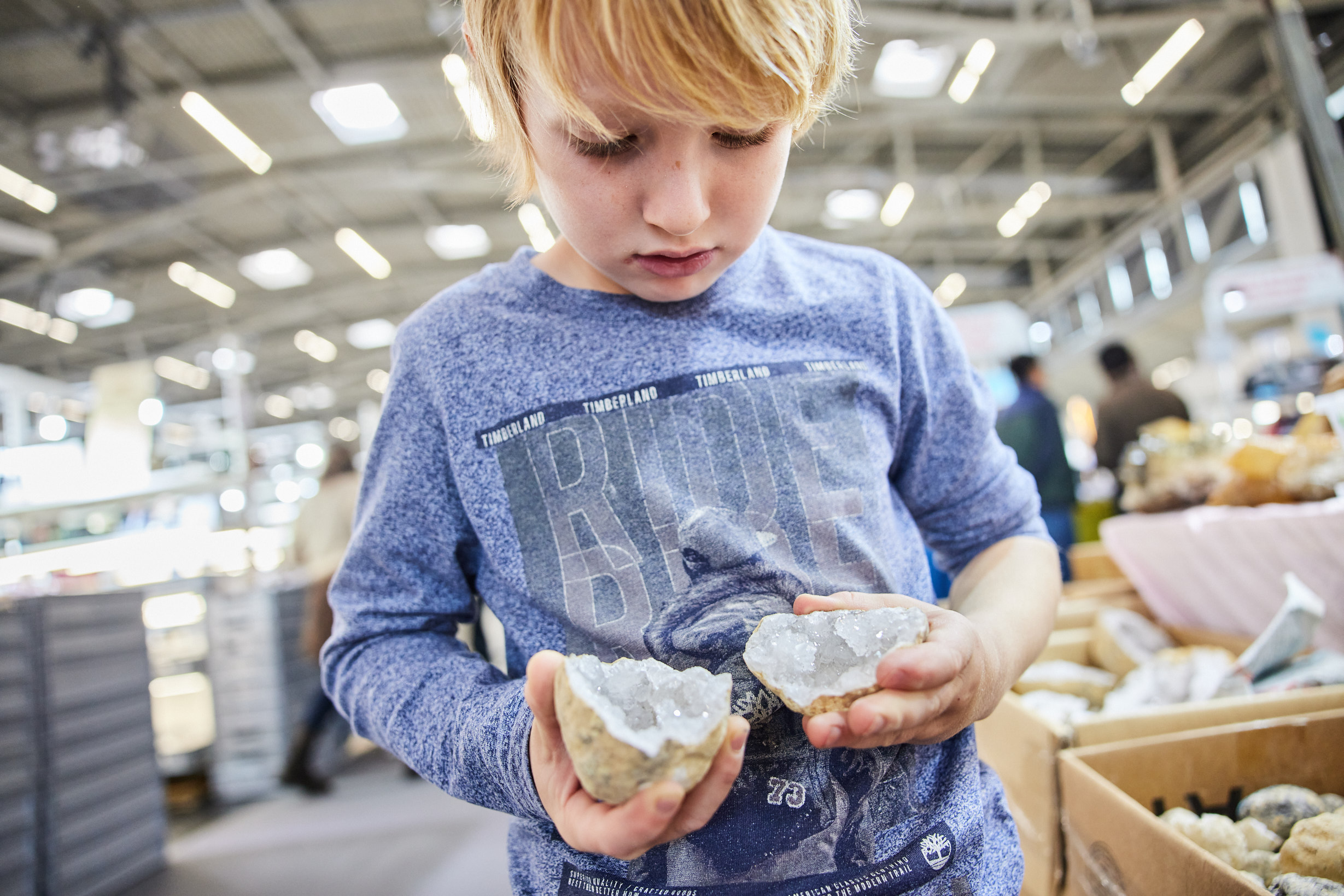
Hidden crystal treasures
WhatHowWhere: Cost: depending on size and weight; Duration: until the other children want a turn, booth A4.214
At the Munich Show, children and young people experience the fascinating connection between nature and time – impressively demonstrated by geode cracking.
In geology, a geode refers to a round rock cavity with a solid outer shell. If crystals form inside over millions of years, it is called a druse. Such geological wonders are created by slow deposition processes in volcanic or sedimentary rock.
Every year, the “geode crackers” team brings numerous small and large, still-closed geodes to the fair. Each child is allowed to choose a geode for themselves. After weighing (the weight determines the price), it is professionally clamped and opened.
With a loud crack, the outer shell breaks open, revealing the sparkling crystal core. The colors and shapes inside always cause great surprise and excitement.
Experienced supervisors at the stand explain which minerals and crystals can be seen in the opened geode—an exciting moment that combines science and wonder in a special way.
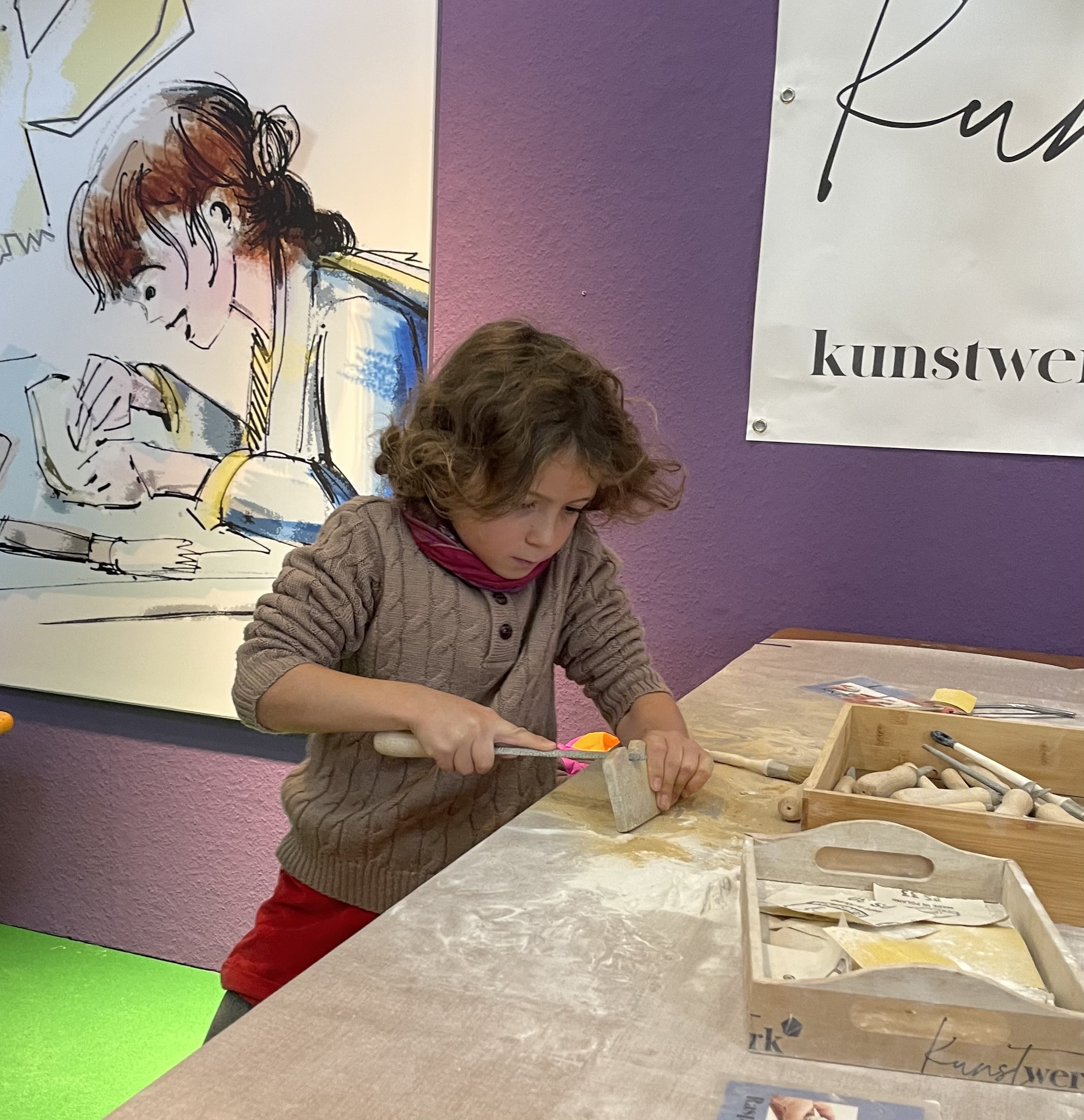
Shaping, carving, rasping, grinding
WasWieWo: Kosten: ca. 5 Euro, empfohlen ab 5 Jahren, Dauer: ca. 30–60 Minuten, Stand A4.100
Soapstone is the softest rock known on earth. Its smooth, mild surface and ease of working make it ideal for creative introductory work in sculpture.
The raw stone can be rasped, sanded, and polished without much effort. This results in individual small works of art, inspired by the different colors and natural shapes of the material. The intuitive approach encourages creativity and teaches creative work with natural stone in a playful way.
Various pre-formed models are available to choose from at the Munich Show. However, those who wish to do so can also design completely freely. At the end, the finished piece can of course be taken home as a souvenir of a special trade fair experience.
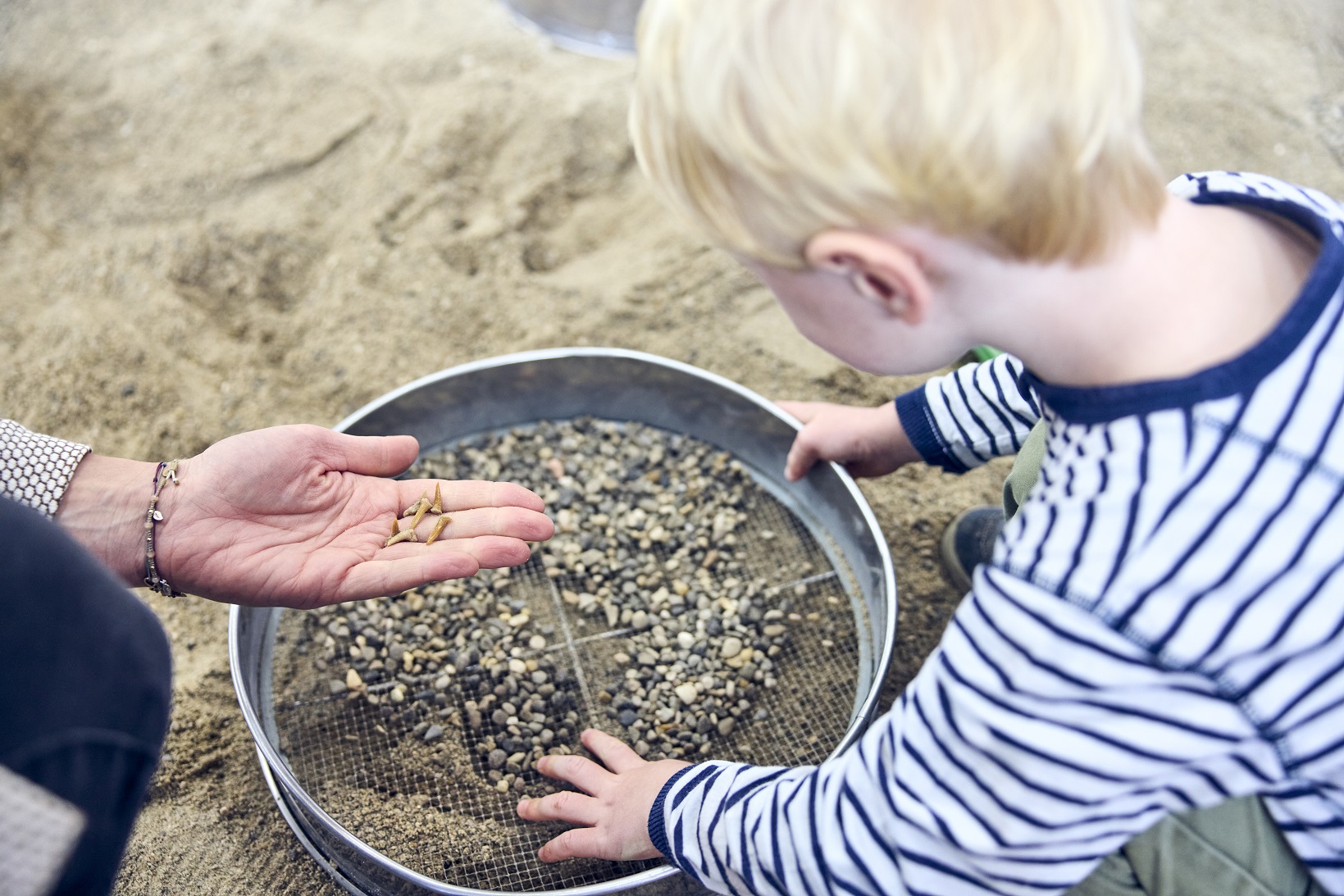
Paleontological discoveries
WhatHowWhere: Free of charge, duration: until the other children want a turn, booth A4.321
Sharks have what is known as a revolving set of teeth, with new rows of teeth constantly growing in. Over the course of their lives, they lose thousands of teeth. Many of these have fossilized over millions of years.
For this reason, fossilized shark teeth are found relatively often. At the Munich Show, children can go on a search themselves: with a shovel and sieve in the large sandbox, they can playfully discover how exciting paleontological discoveries can be. A little adventure for young fossil researchers.
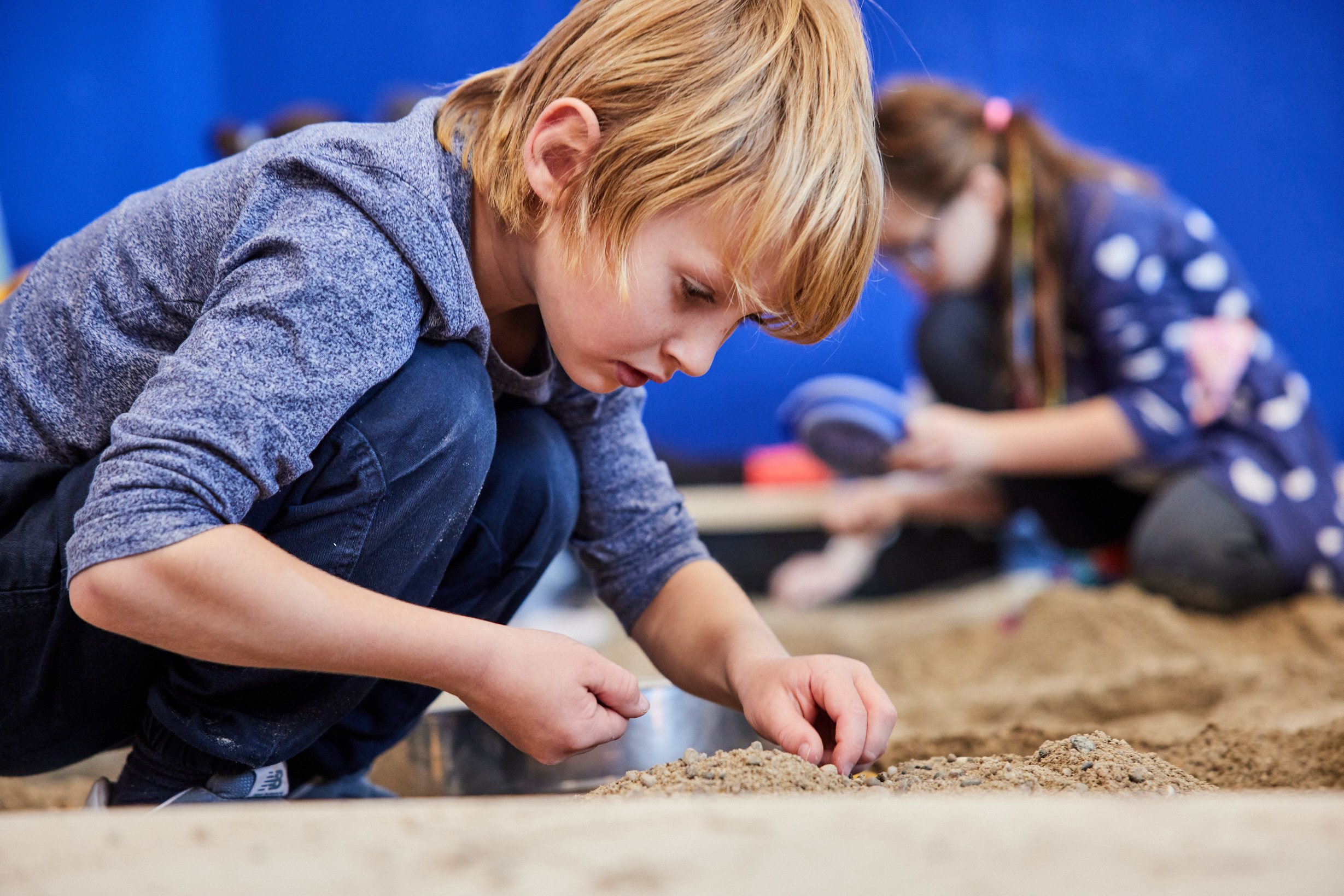
Treasure hunt in the sand
WhatHowWhere: Free of charge, duration: until the other children want a turn, booth A4.321
Numerous little treasures are waiting to be discovered in the large sandpit. Young visitors can use sieves and shovels to sift through the sand mountains layer by layer to find hidden surprises.
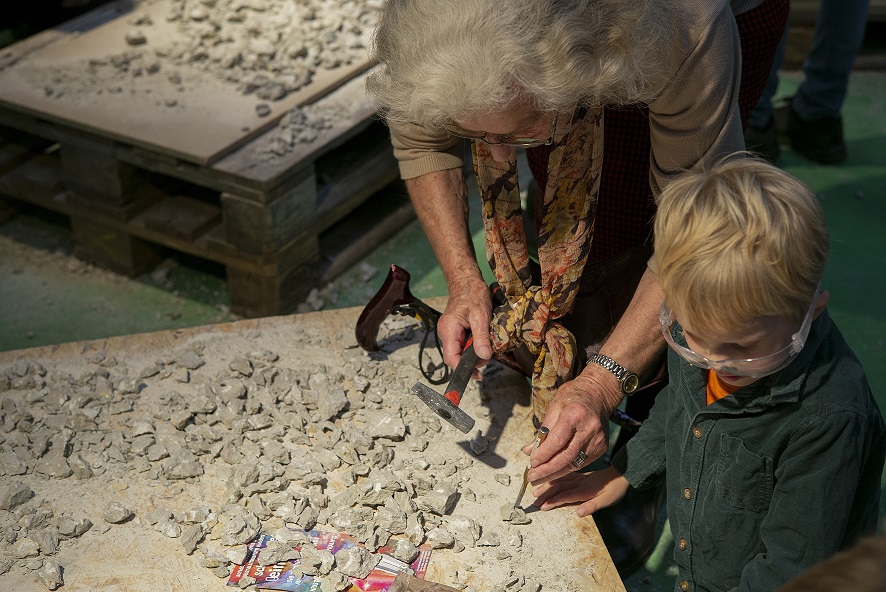
Discover treasures from prehistoric times
What, how, where: Price per kilo, duration: approx. 30 minutes, booth A4.311
The past comes alive when splitting fossils: special limestone slabs often contain fossilized remains of marine animals, such as ammonites, crinoids, or shells.
Equipped with hammers and chisels, children and young people can try their hand at carefully splitting the slabs. The moment when the imprint of a creature that lived millions of years ago is revealed is often filled with wonder.
The activity is supervised by expert staff who explain how to work safely and effectively, but are also happy to answer questions about fossils and how they were formed.

